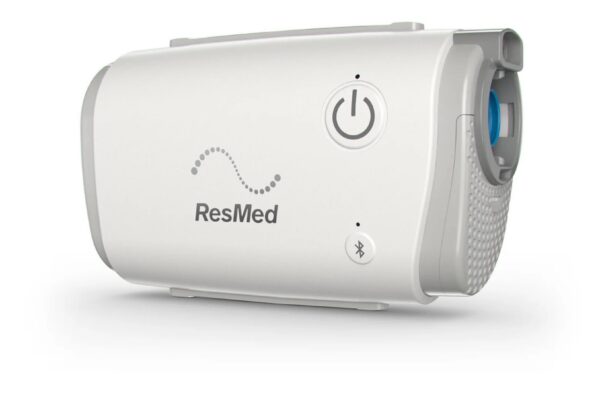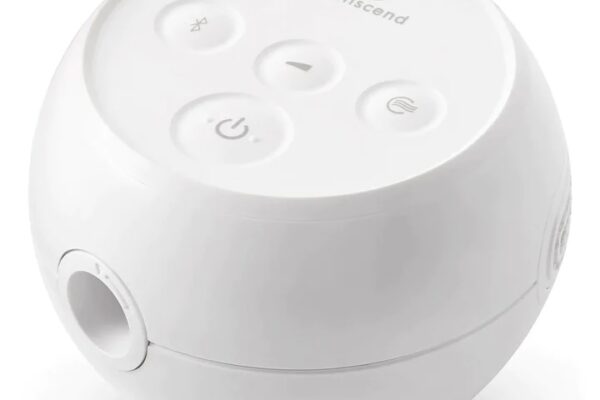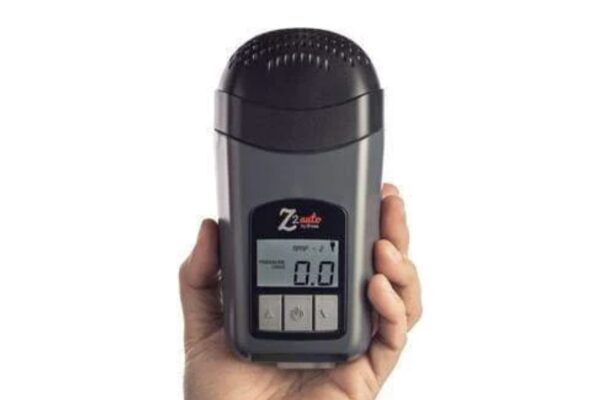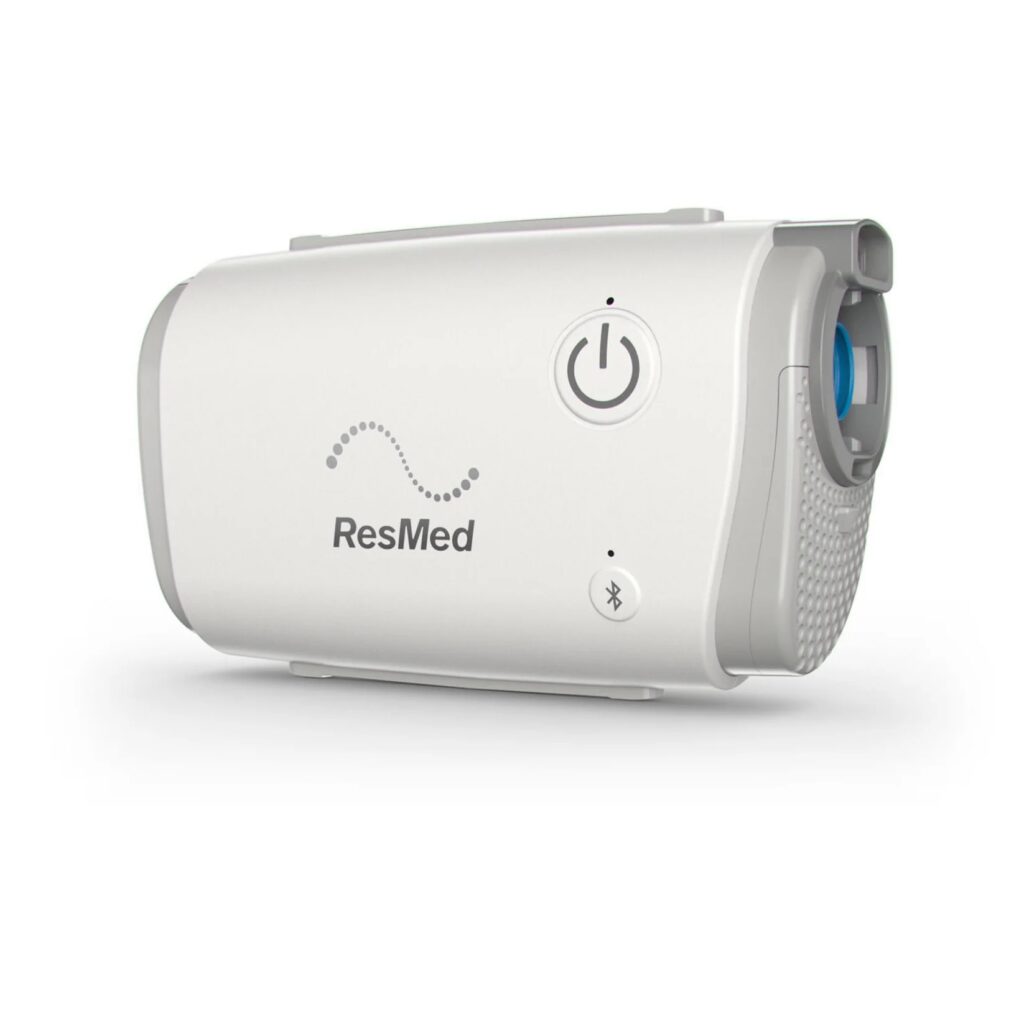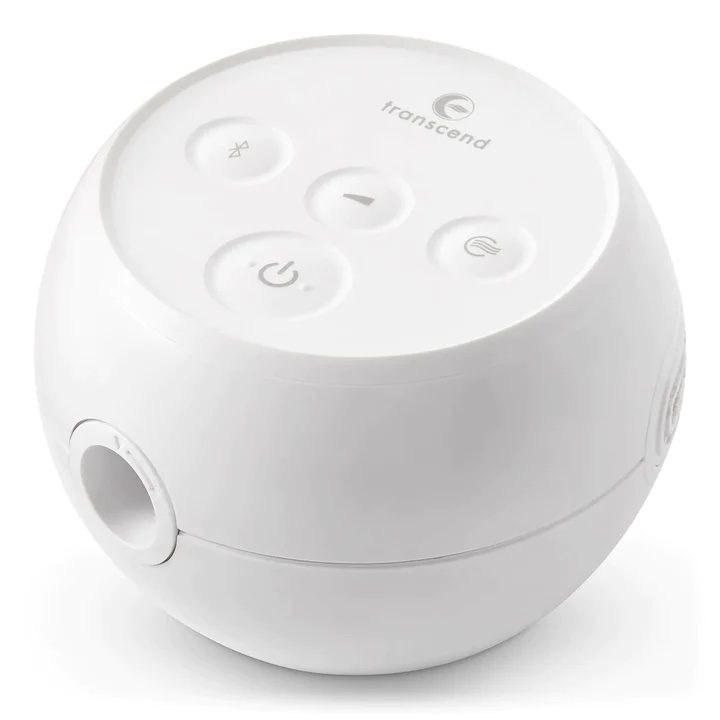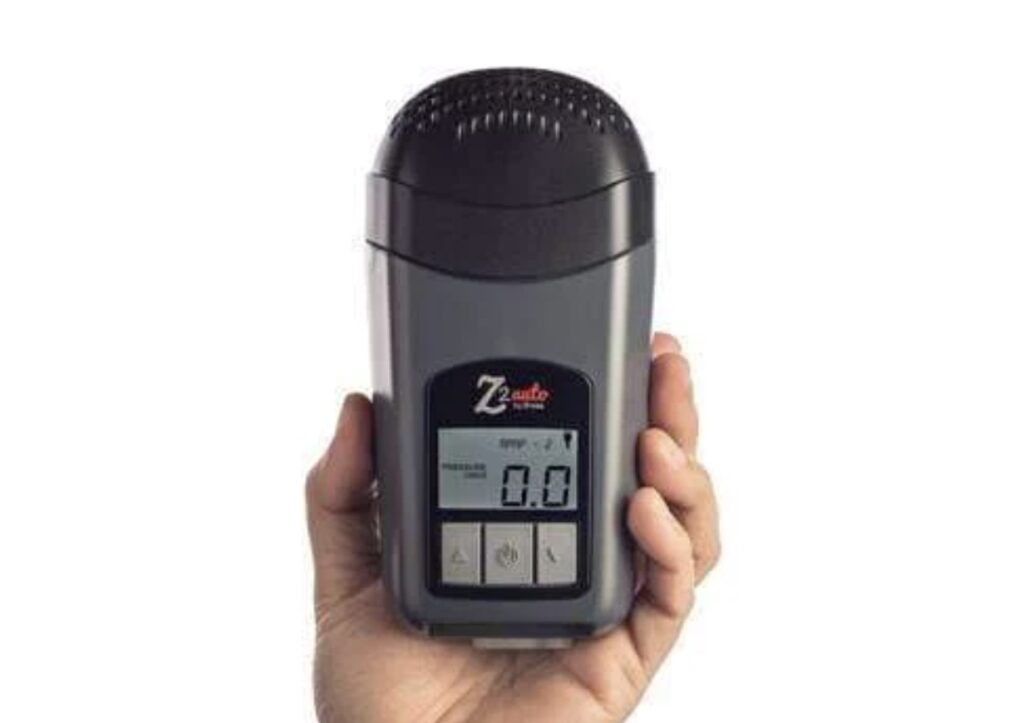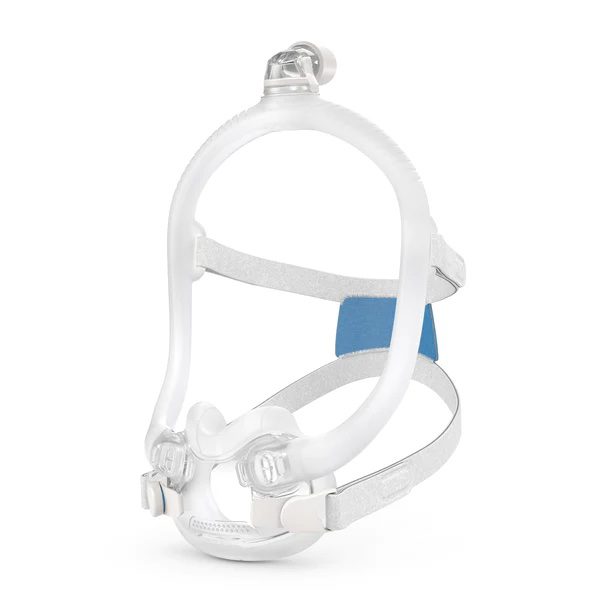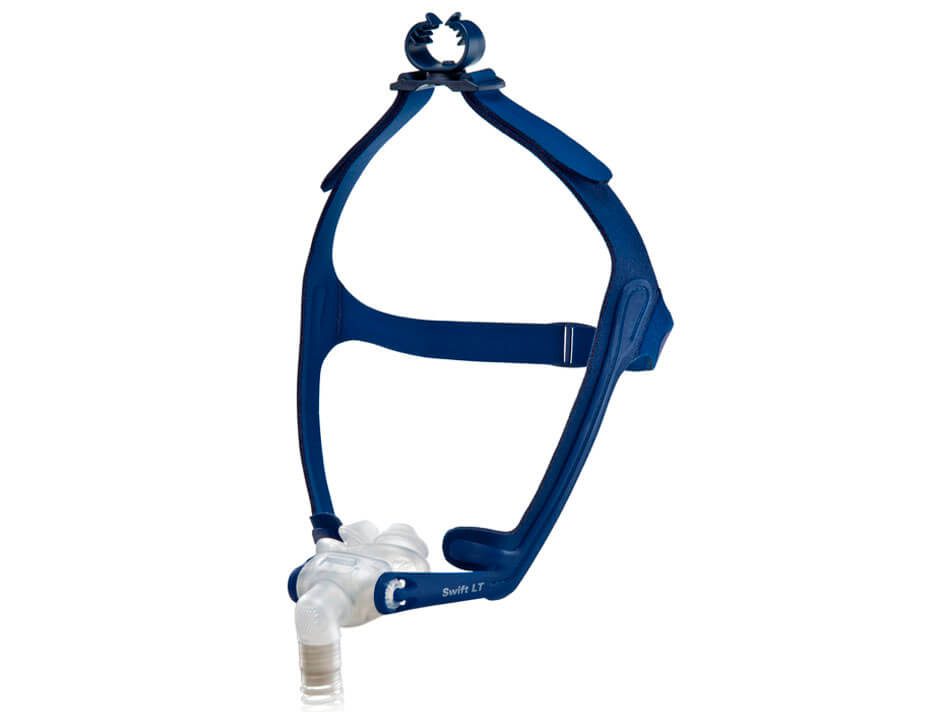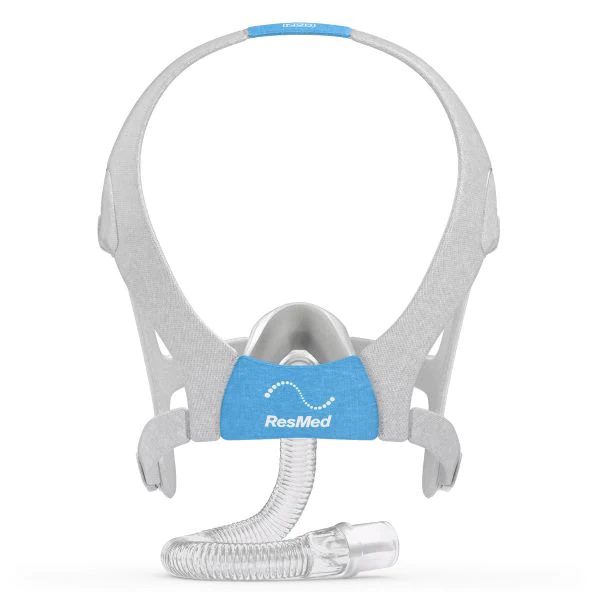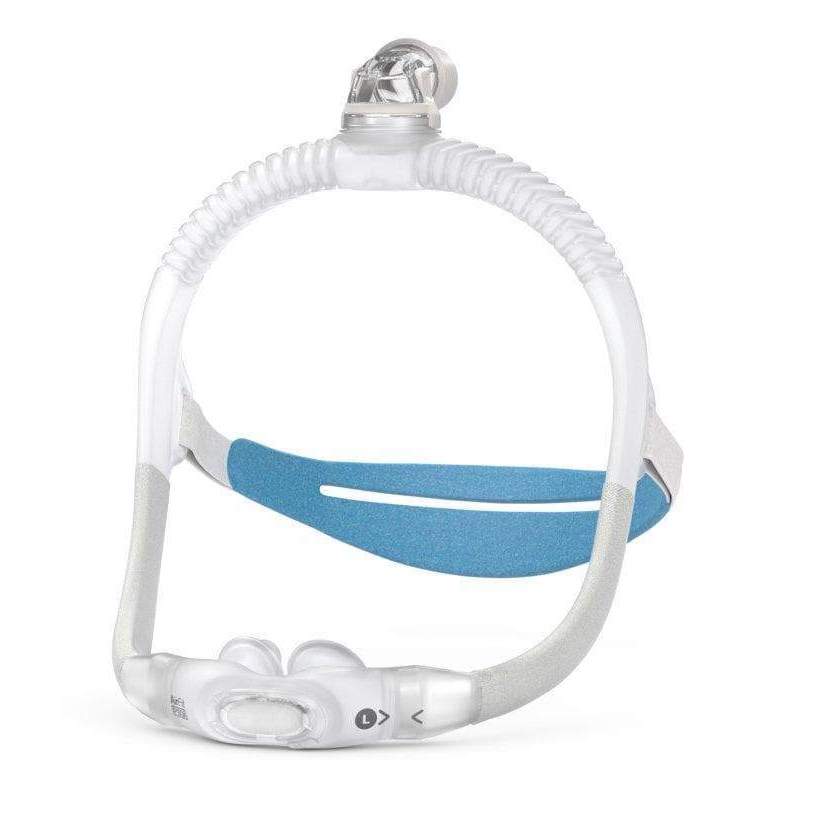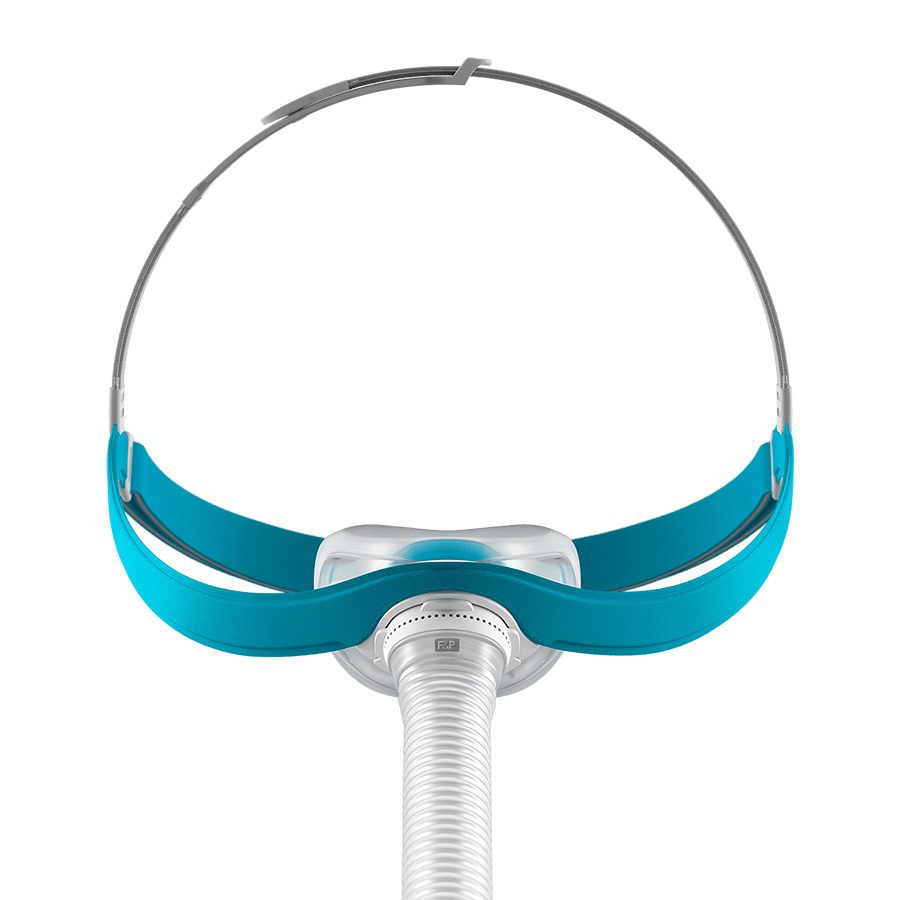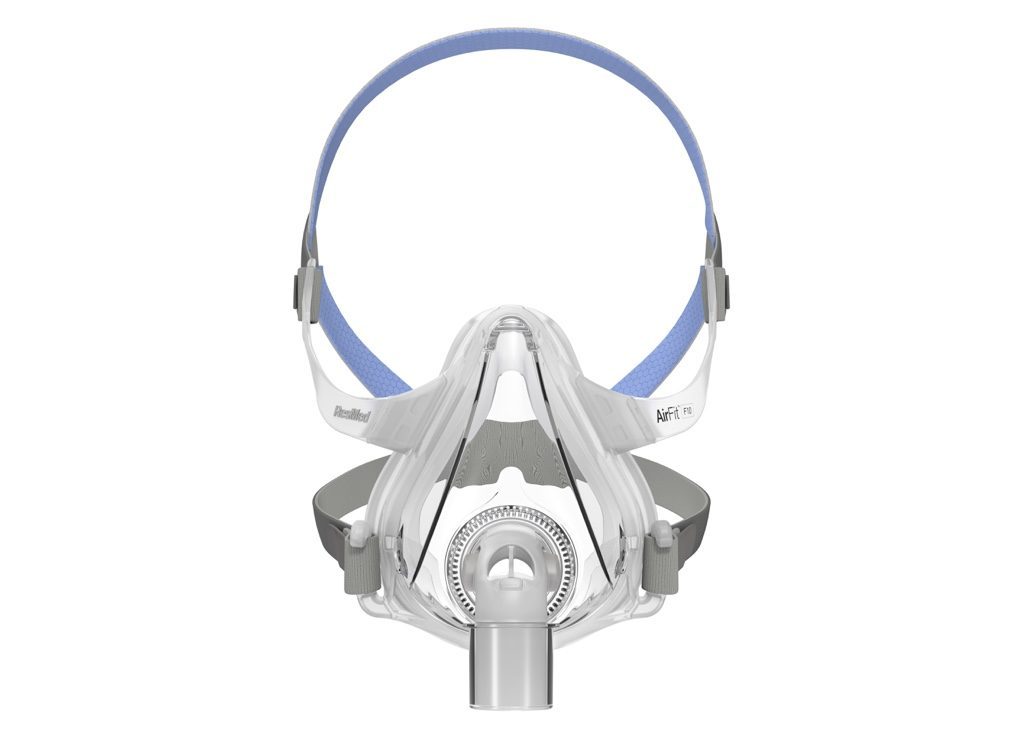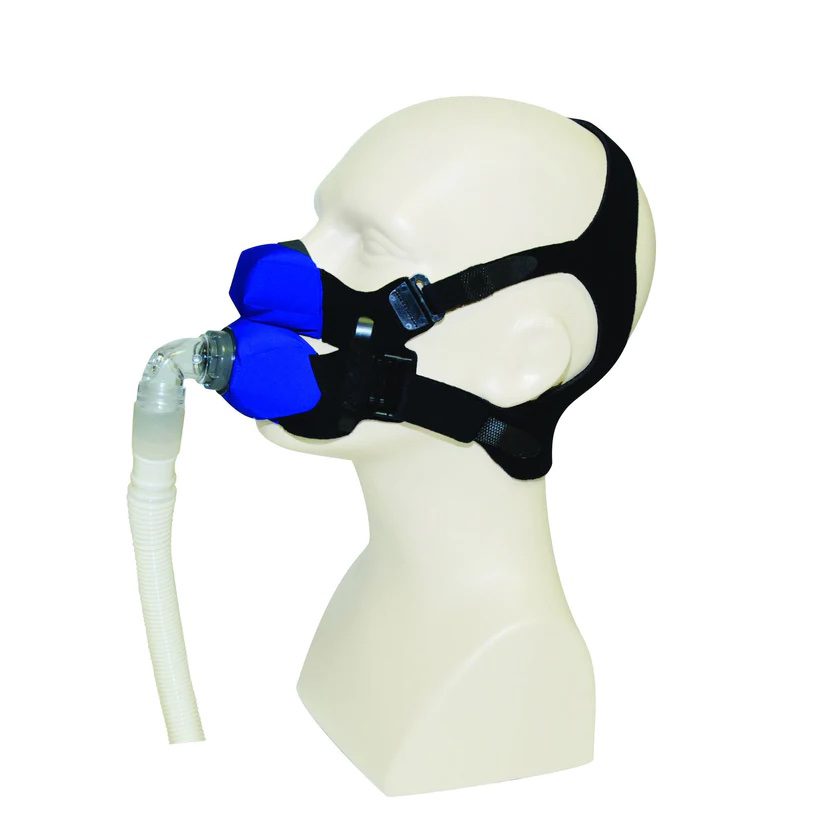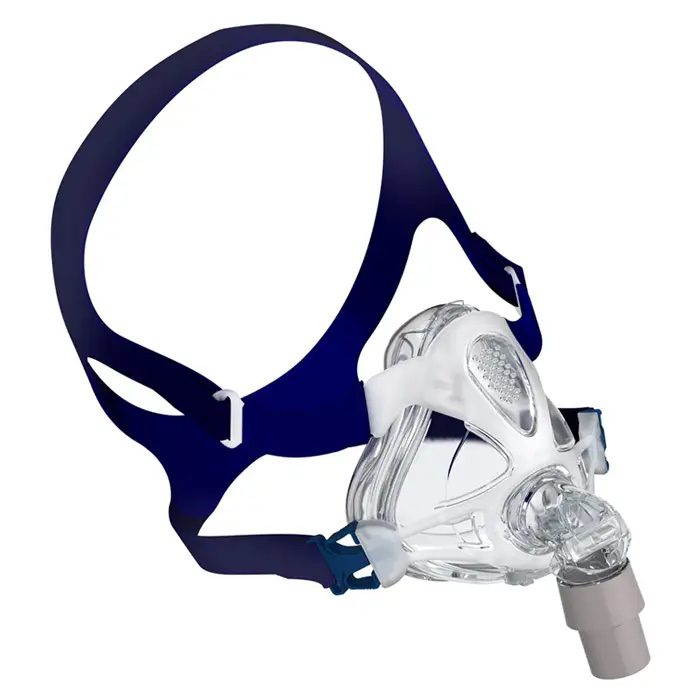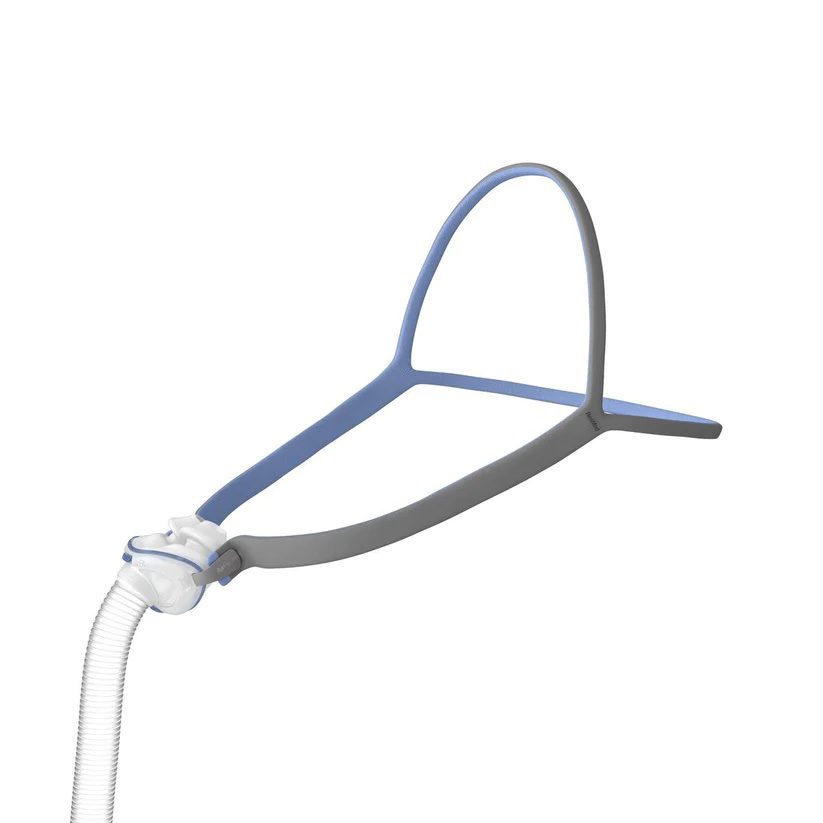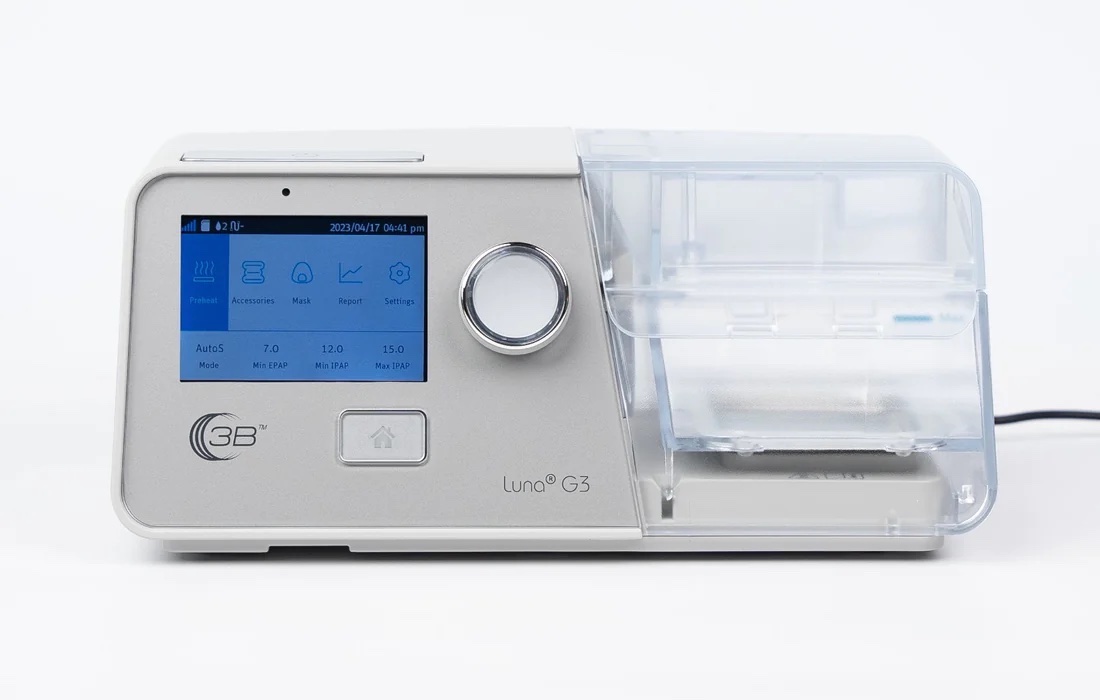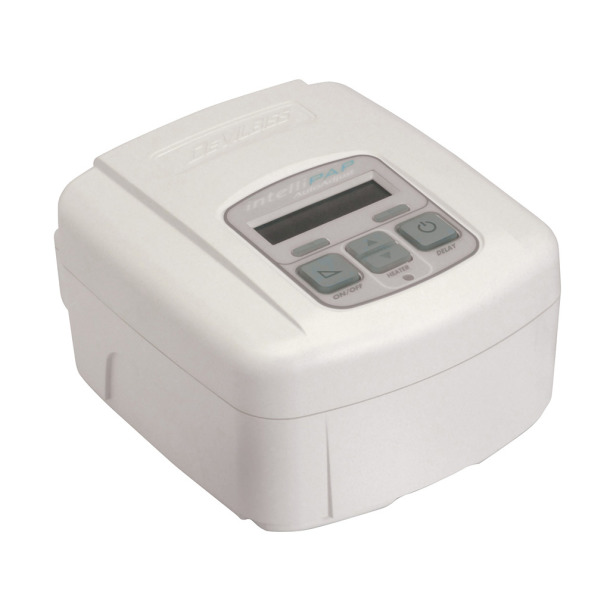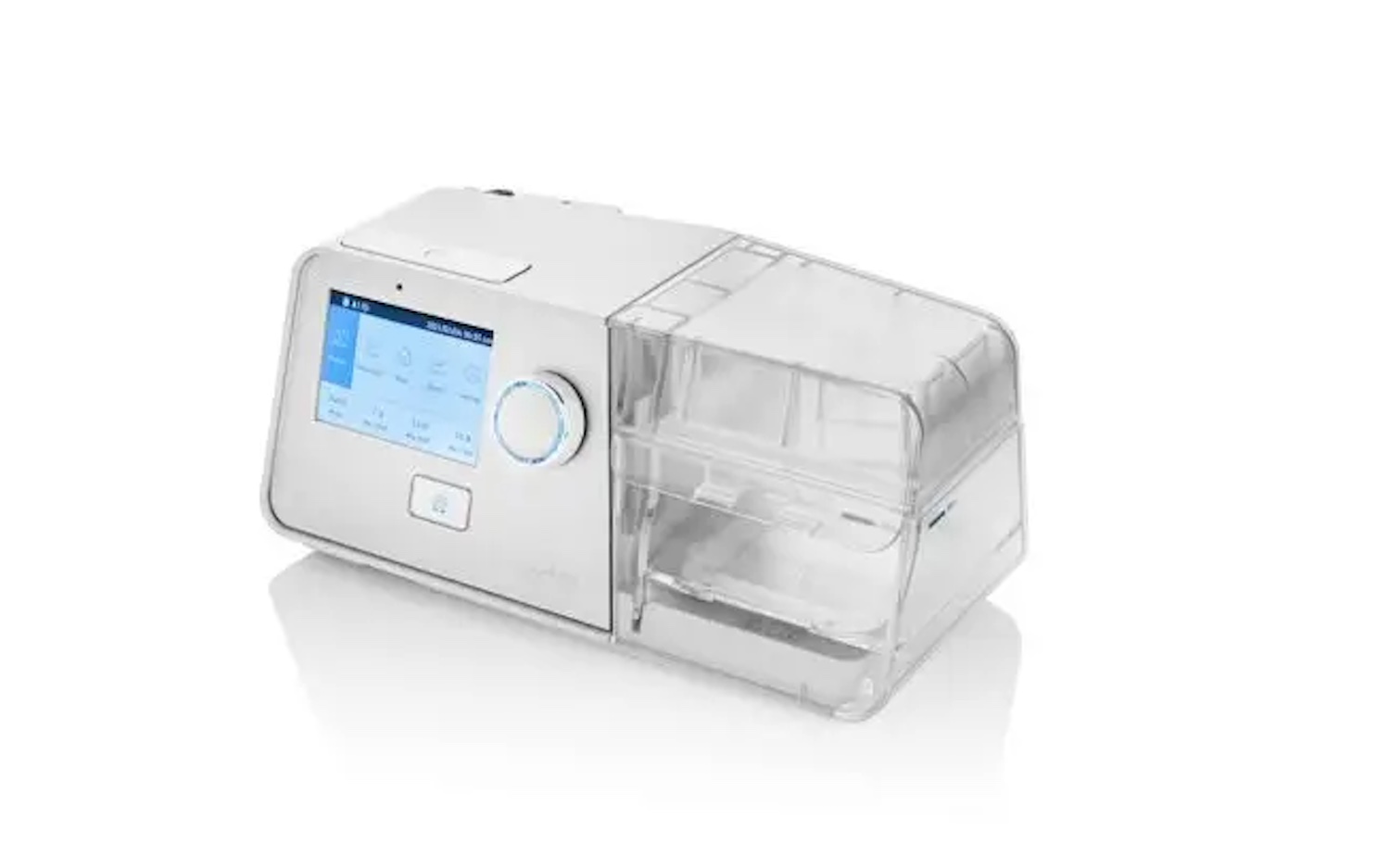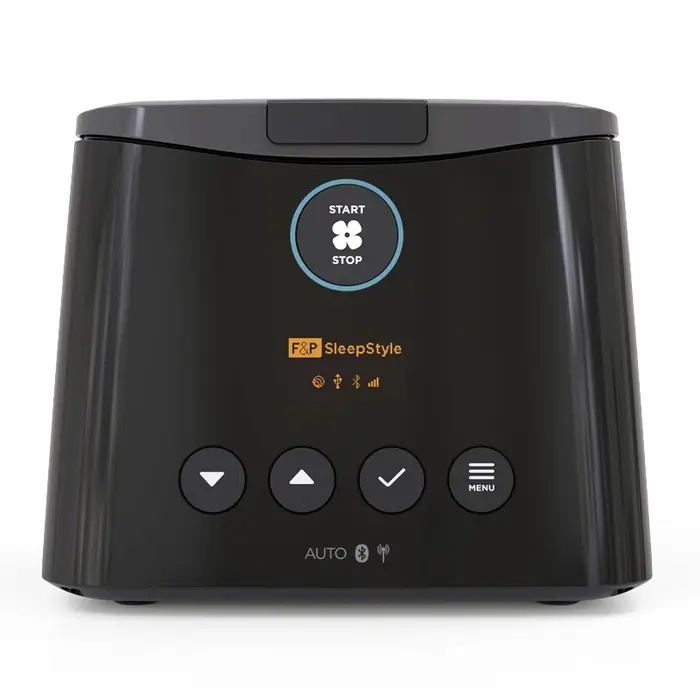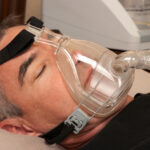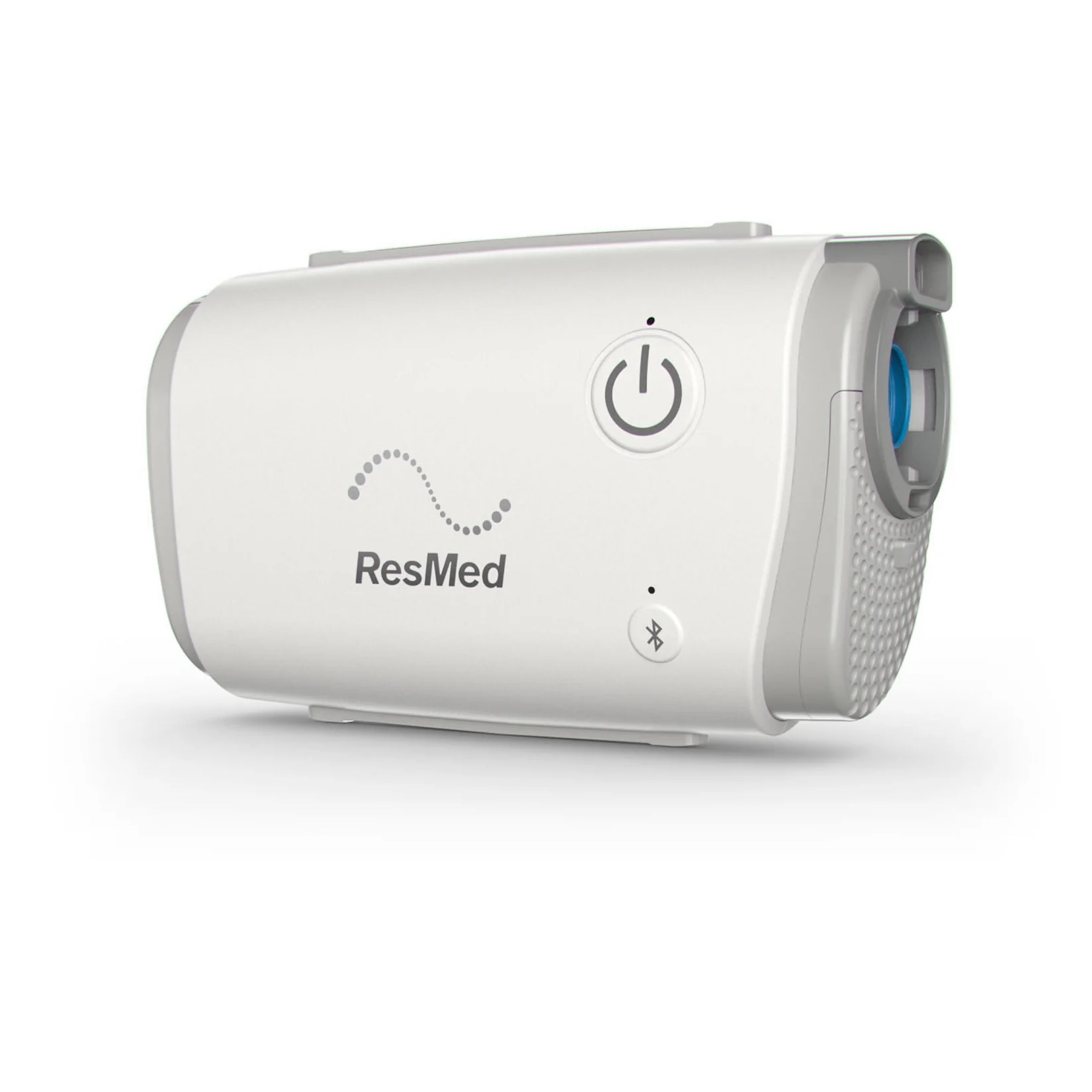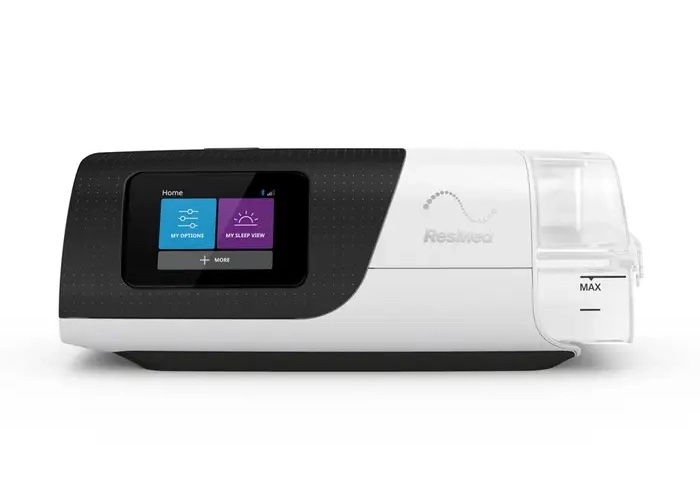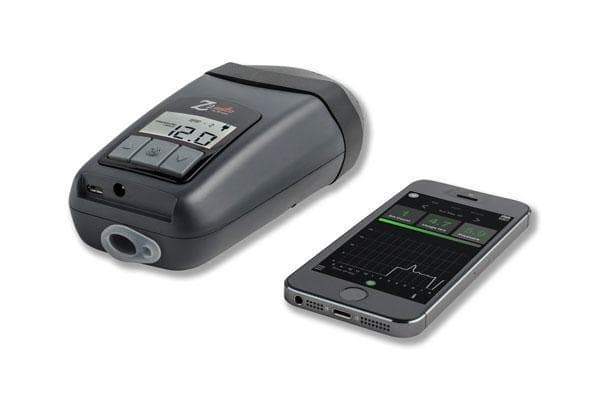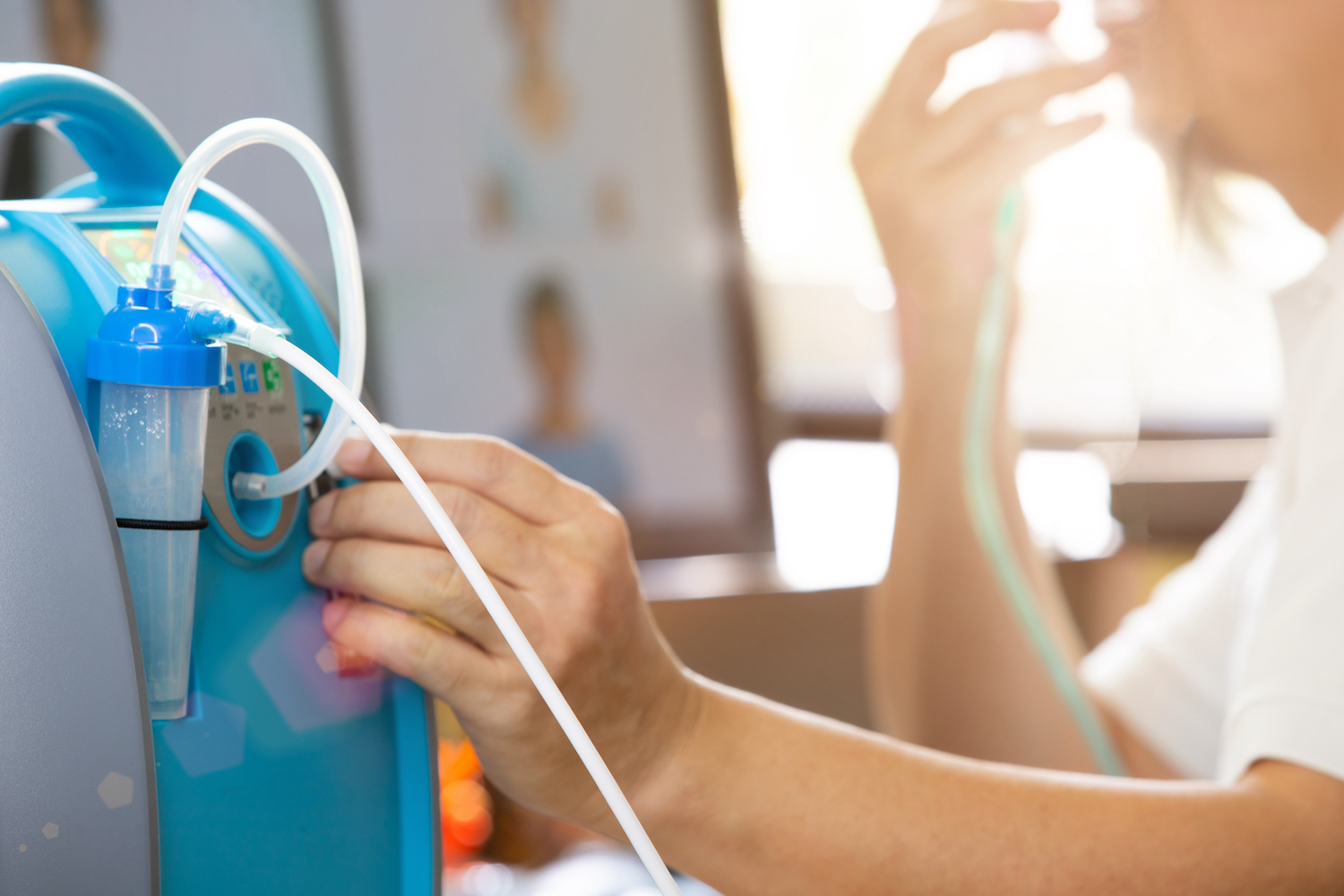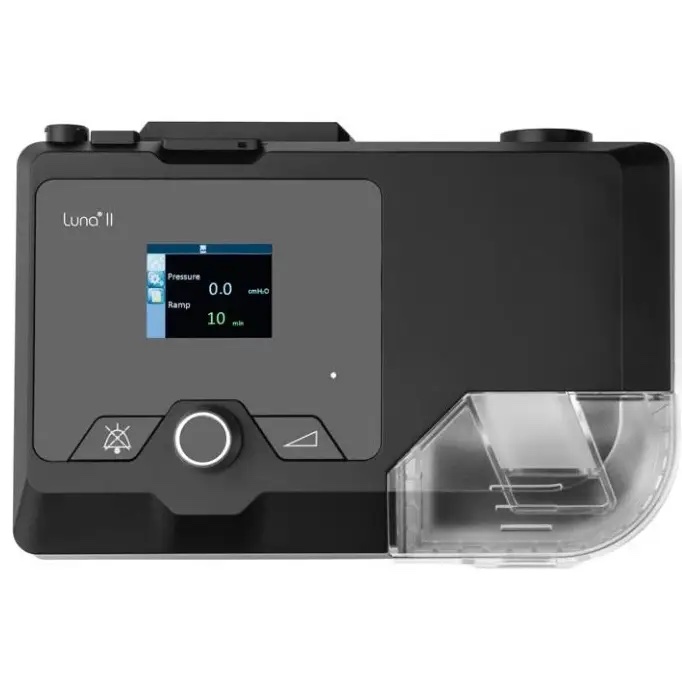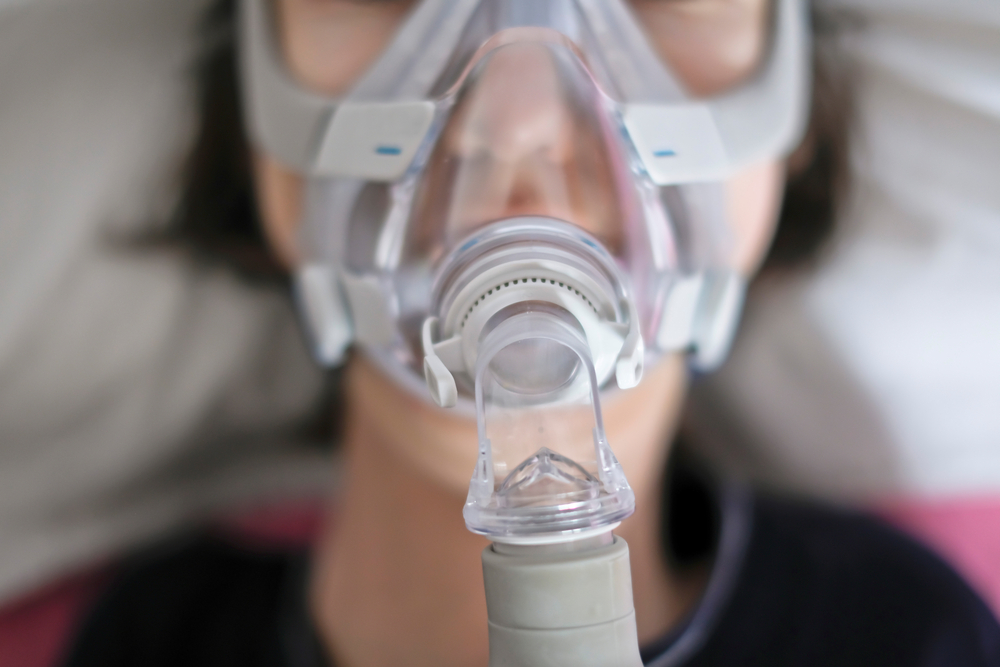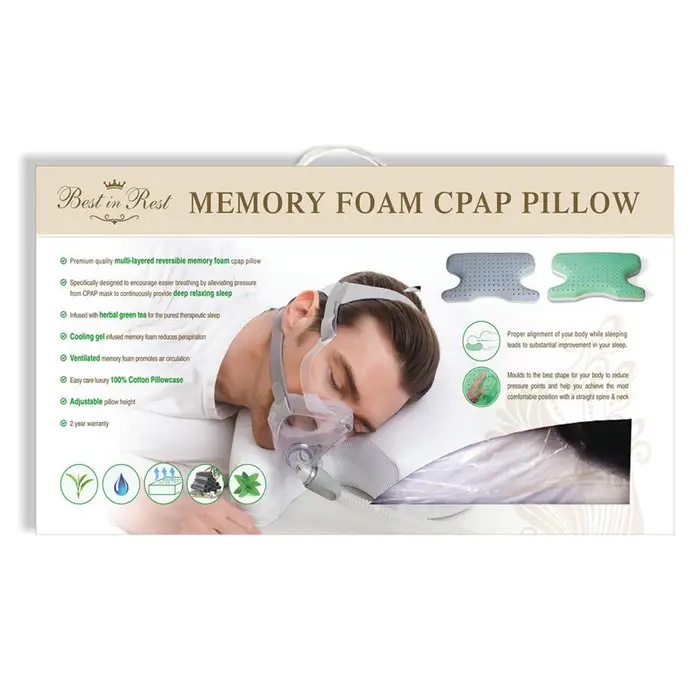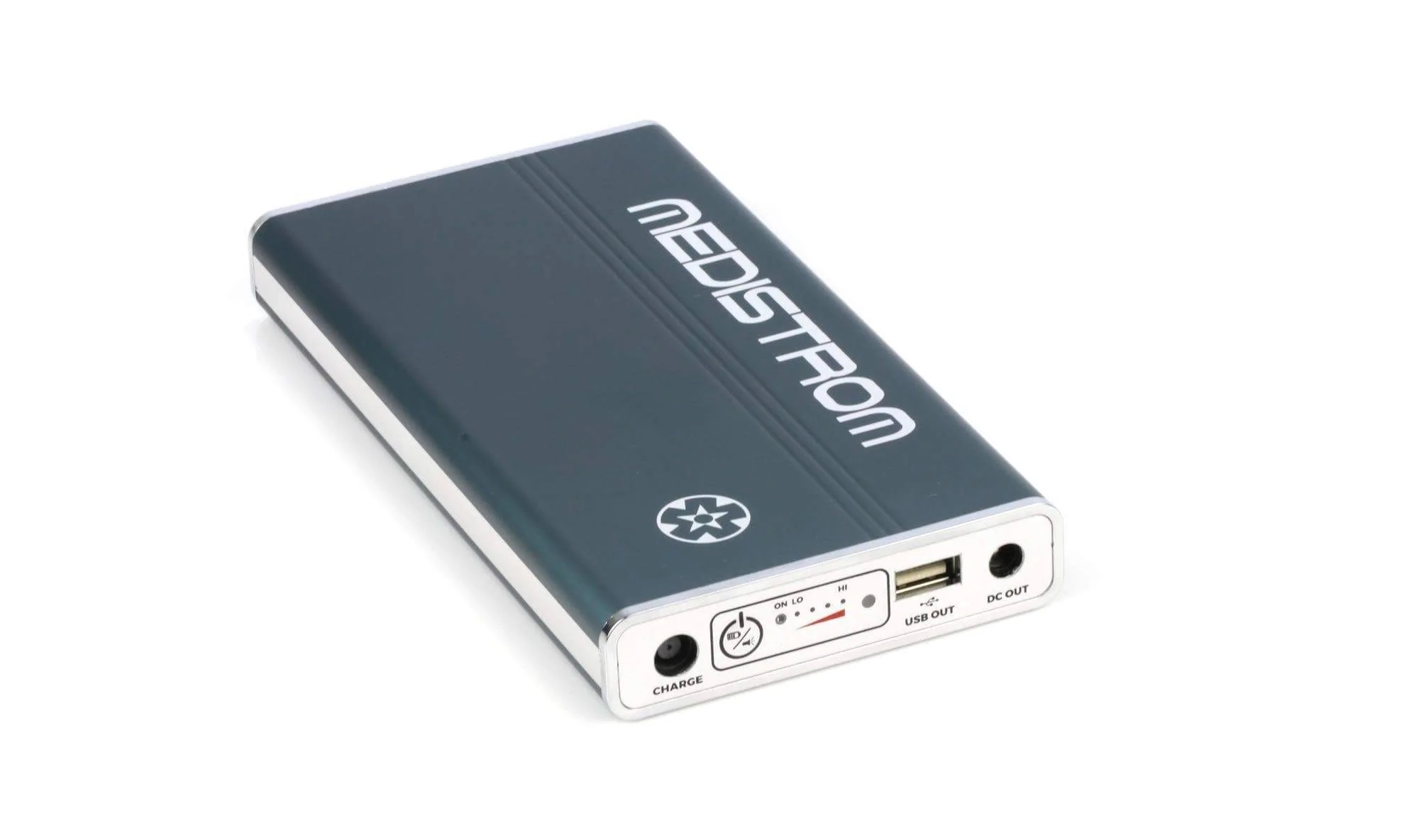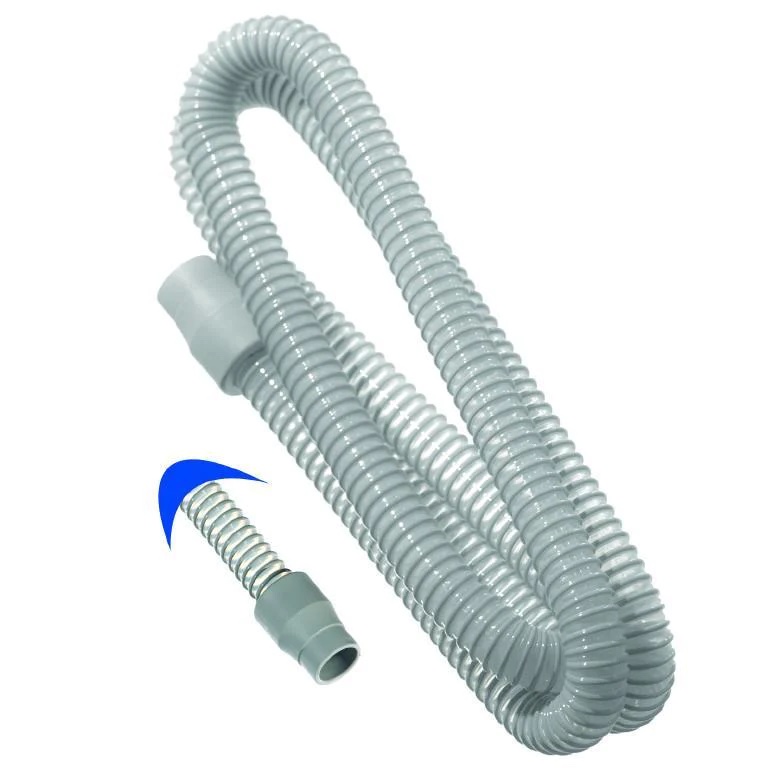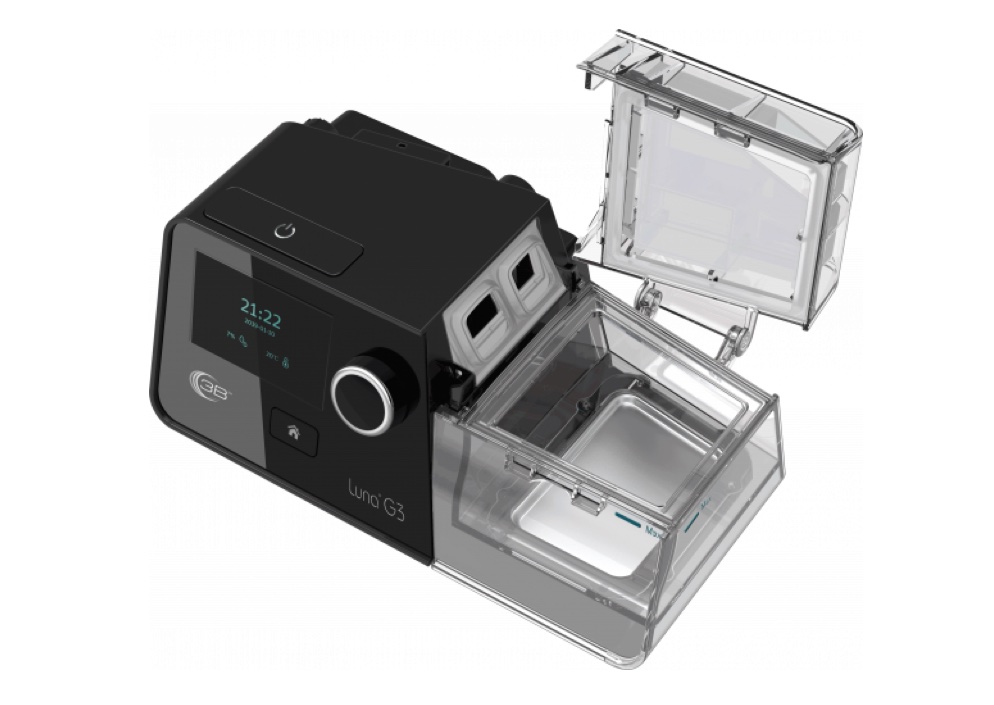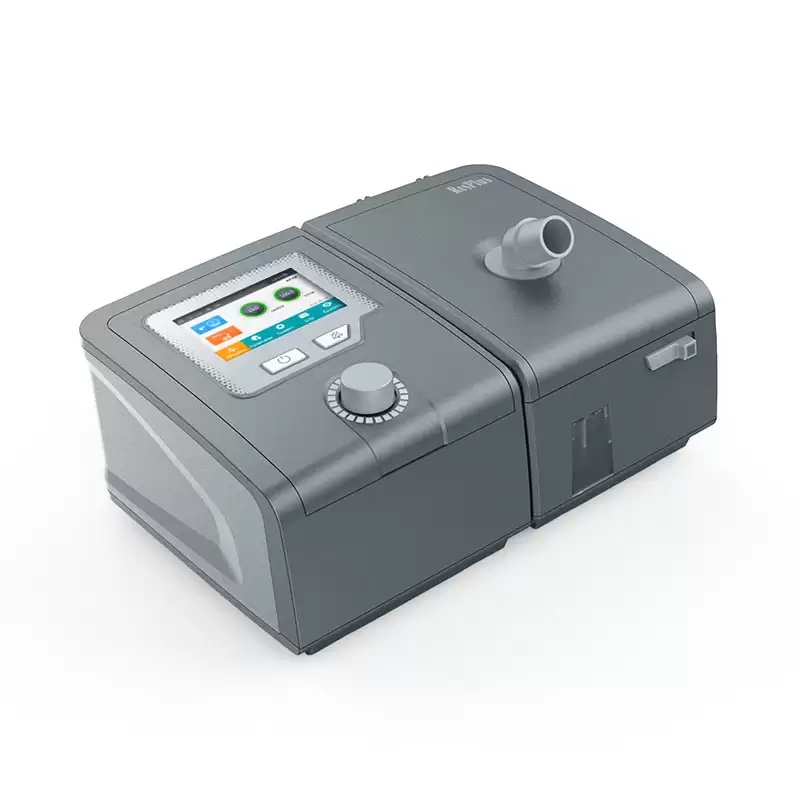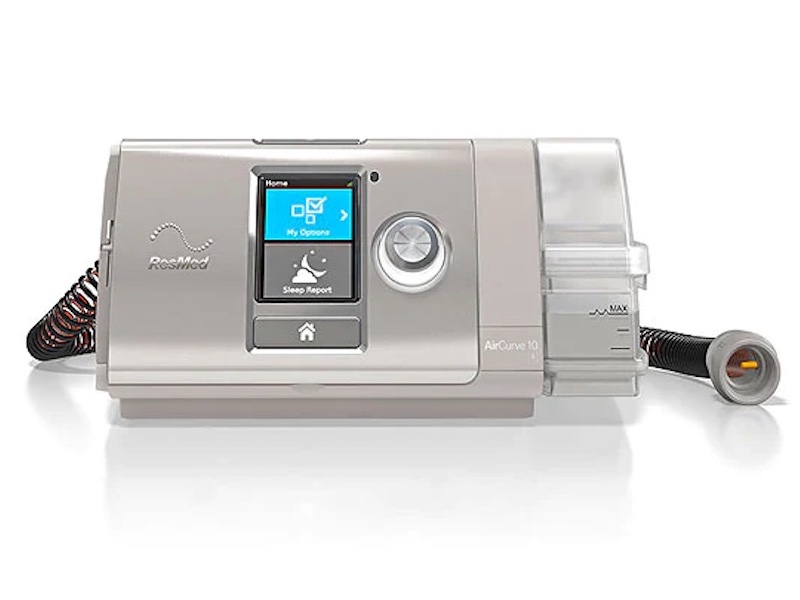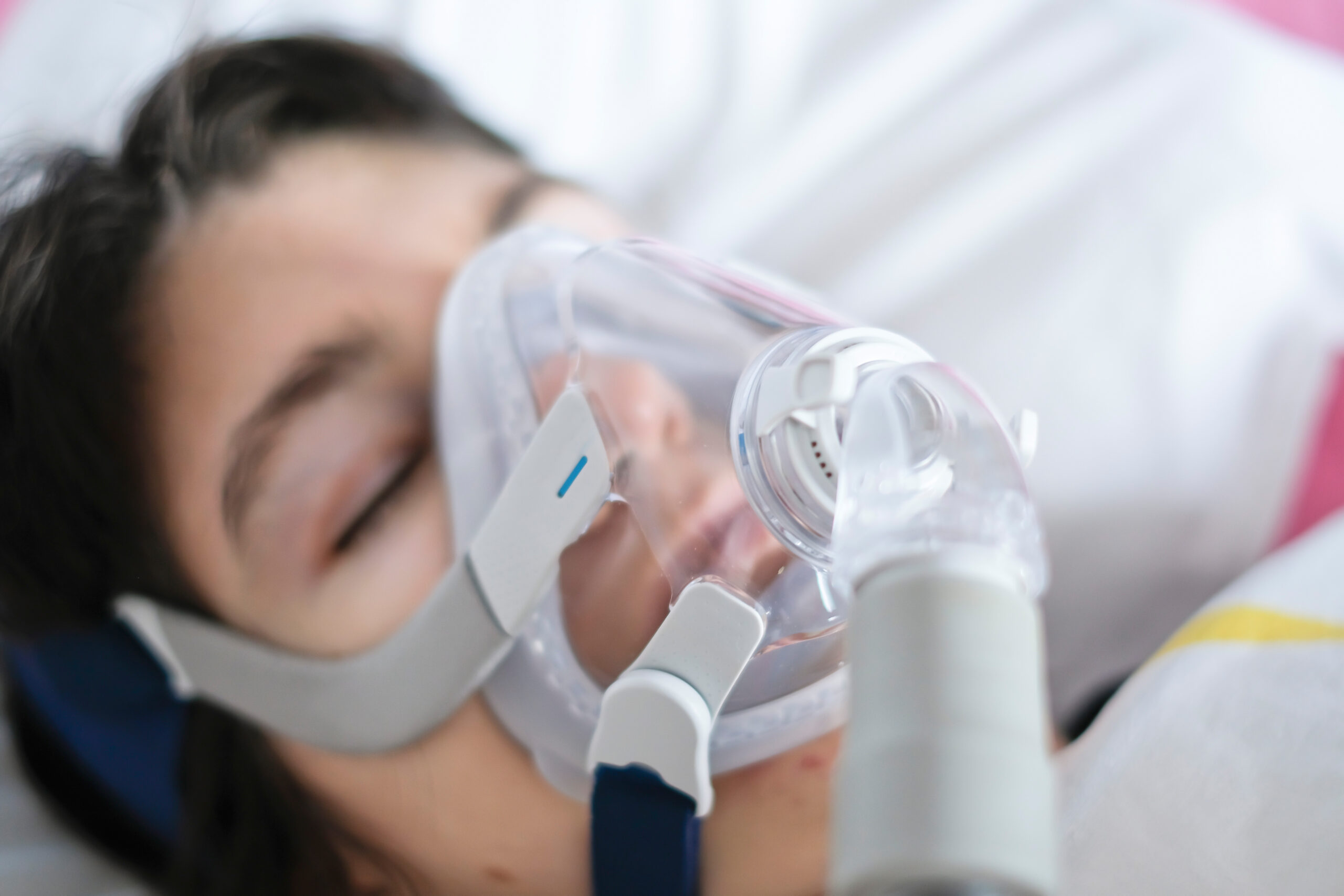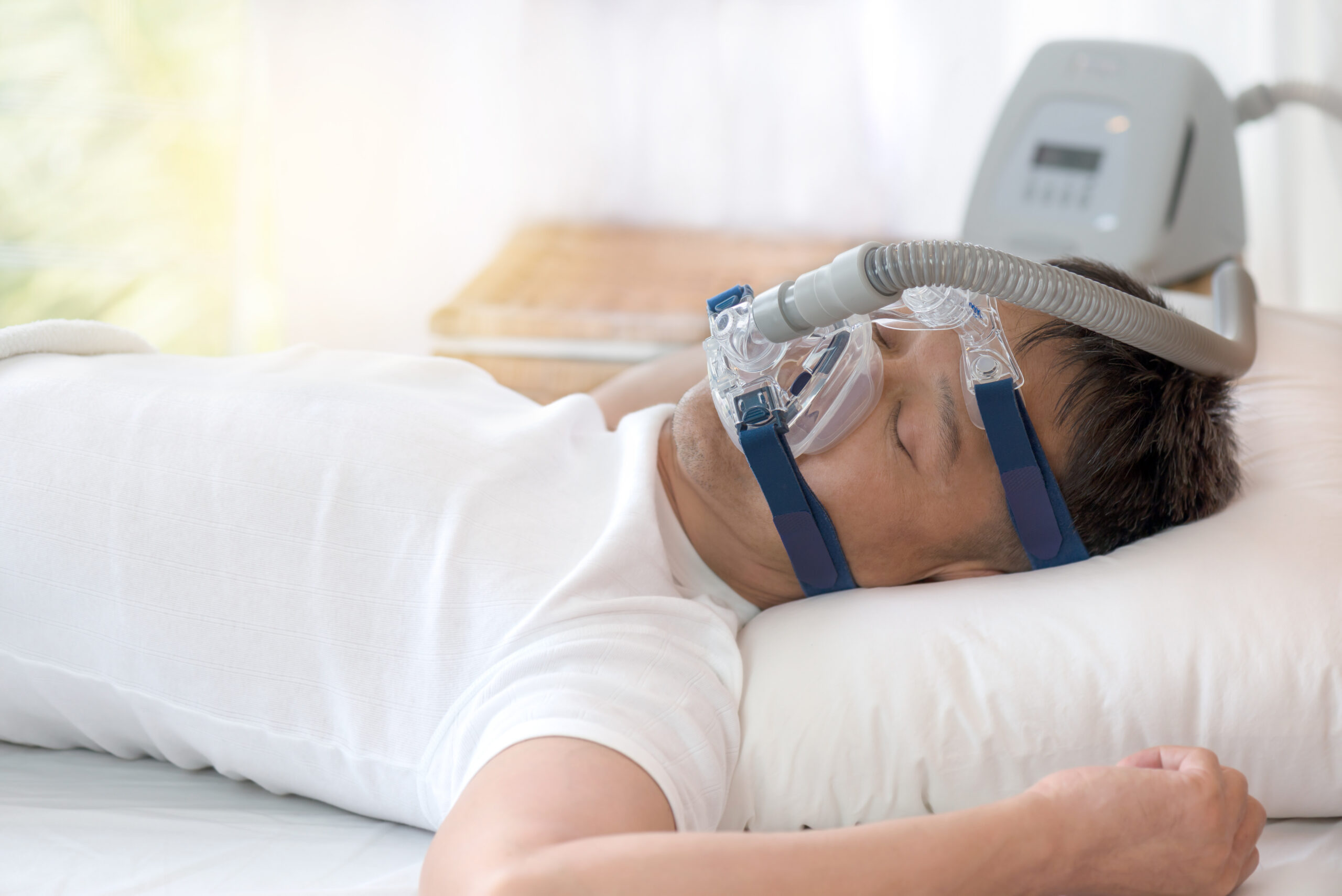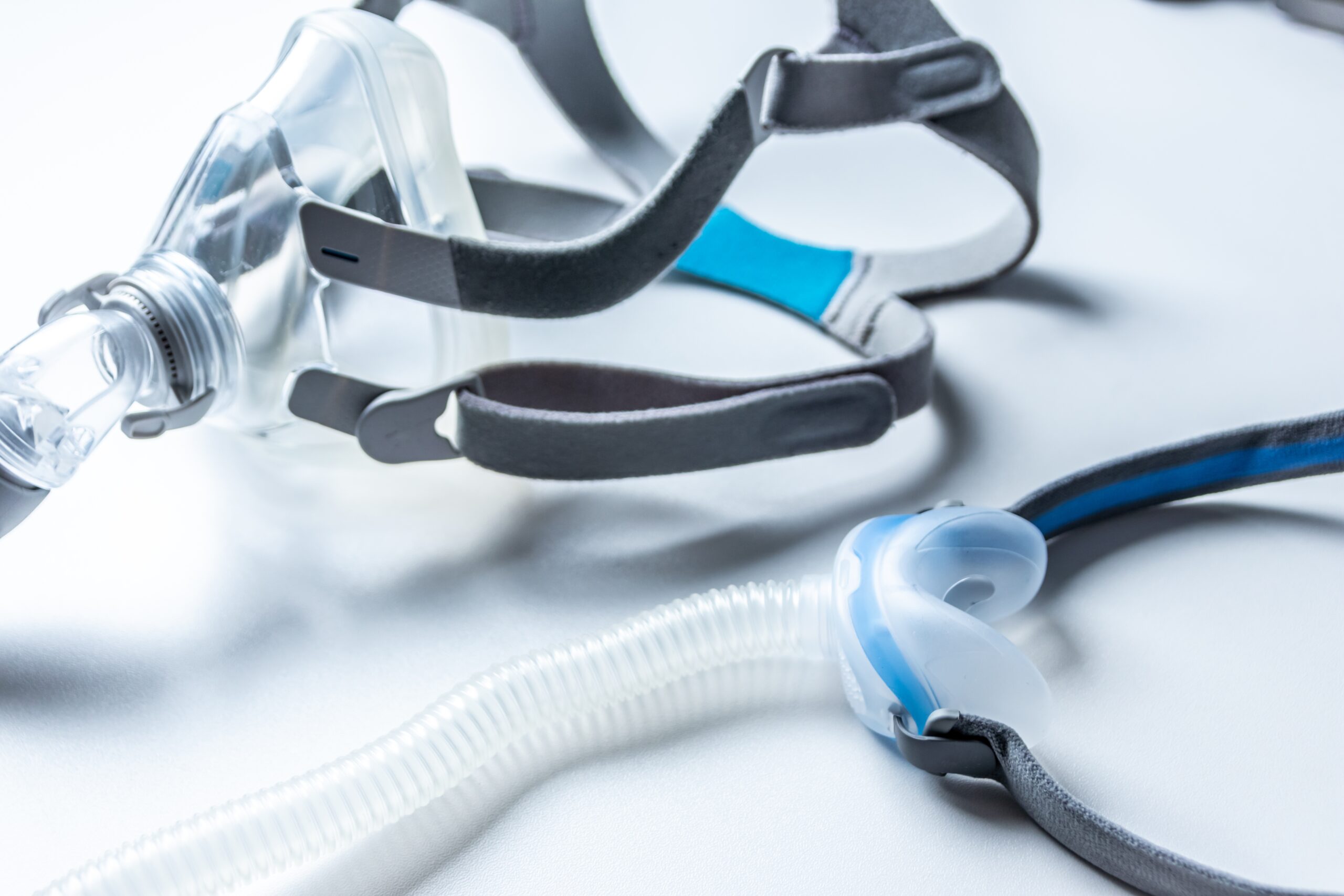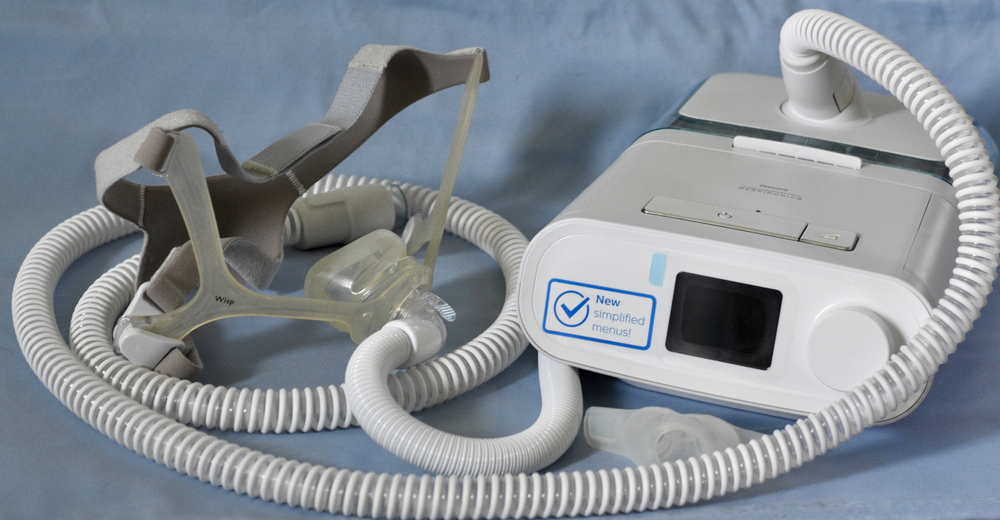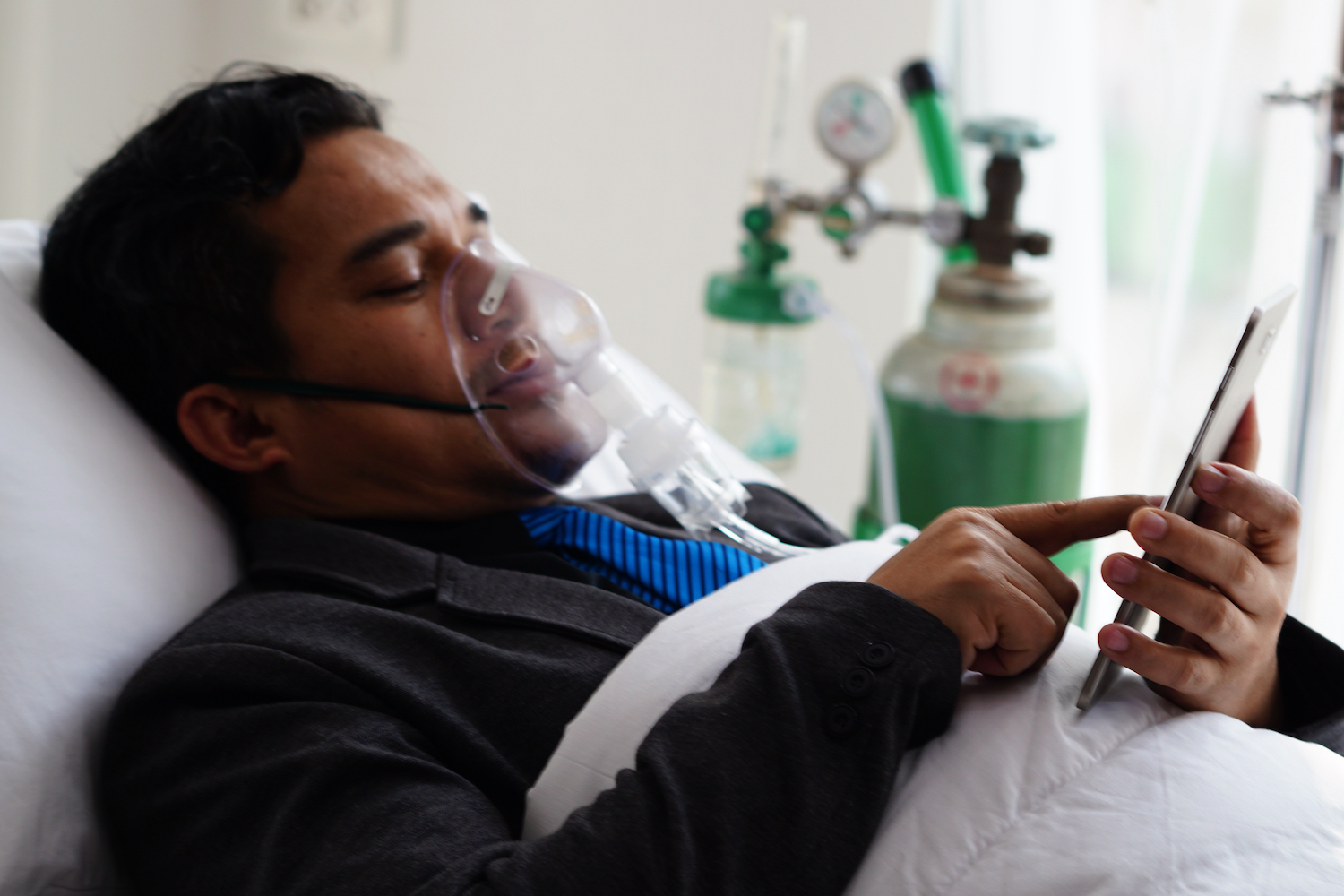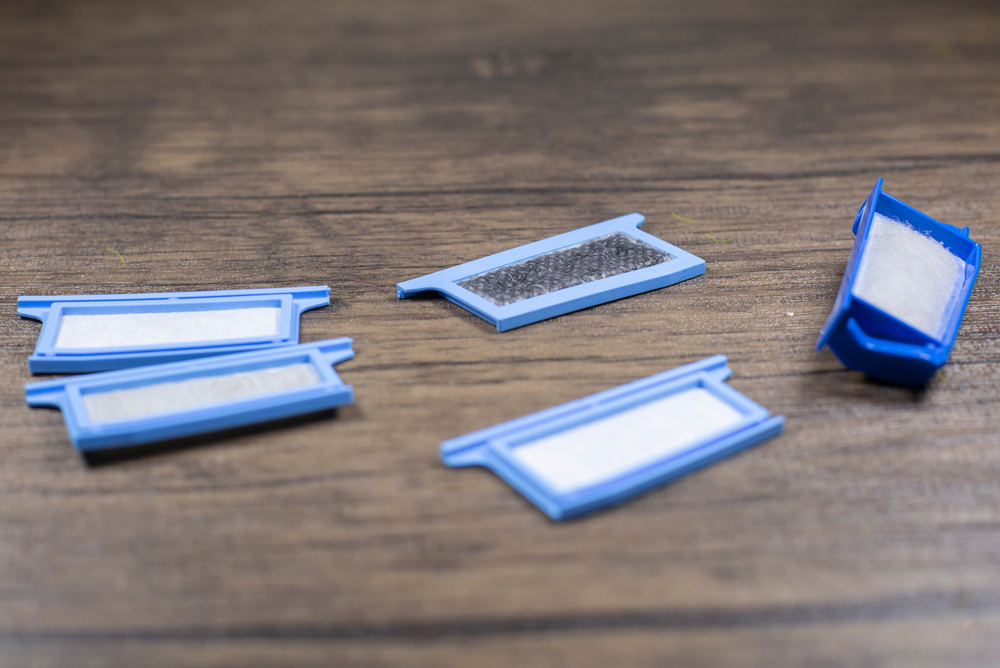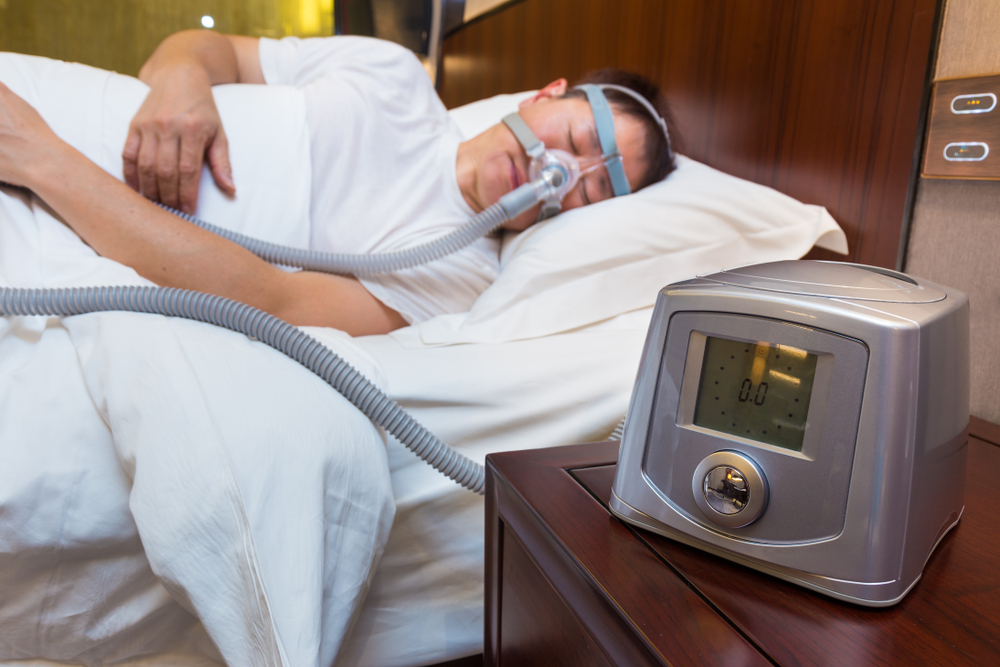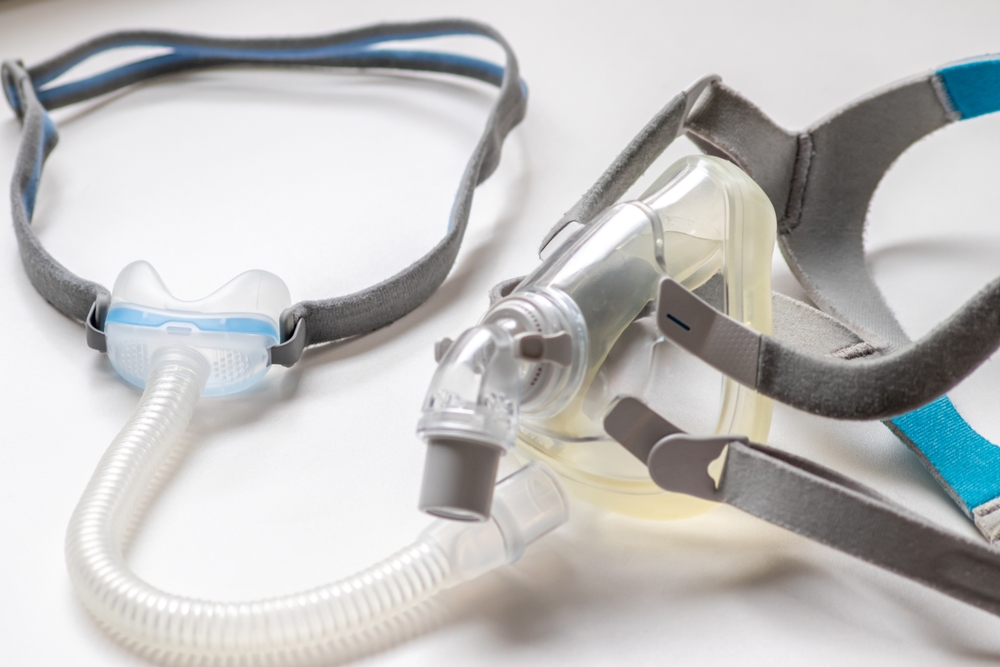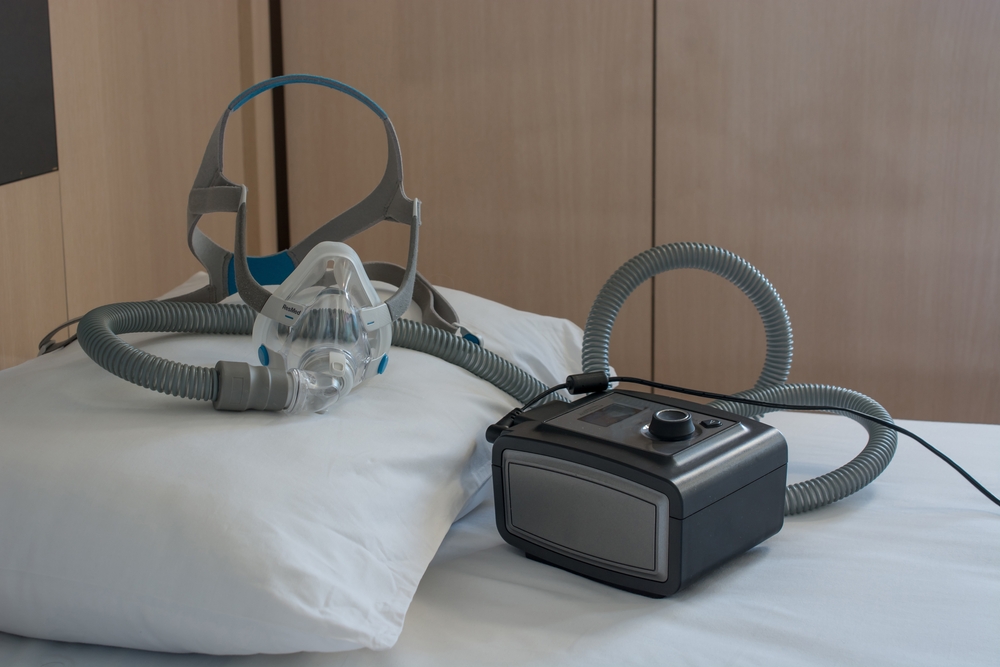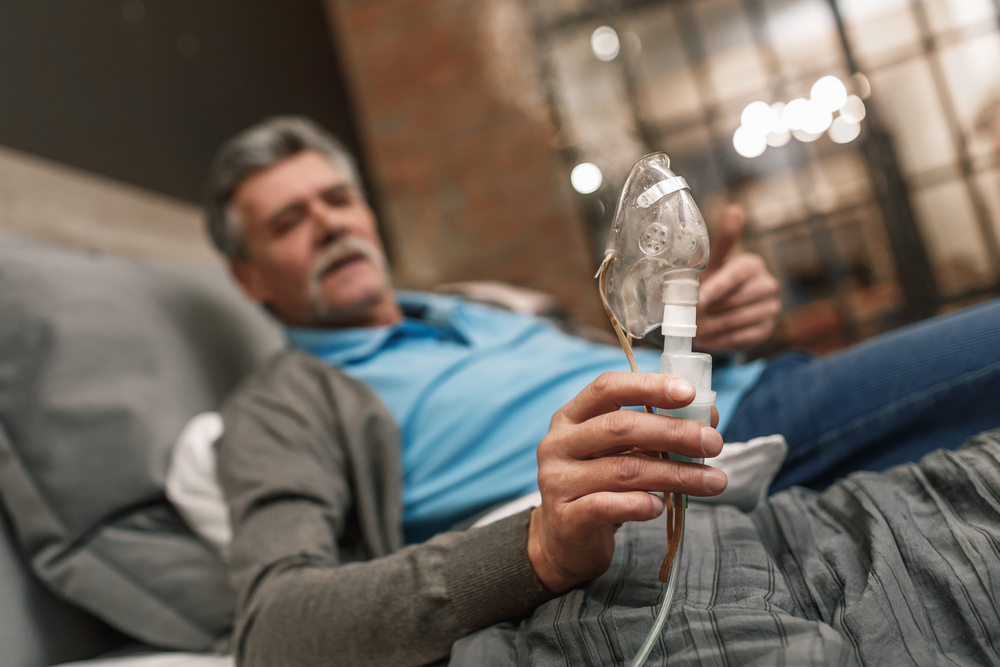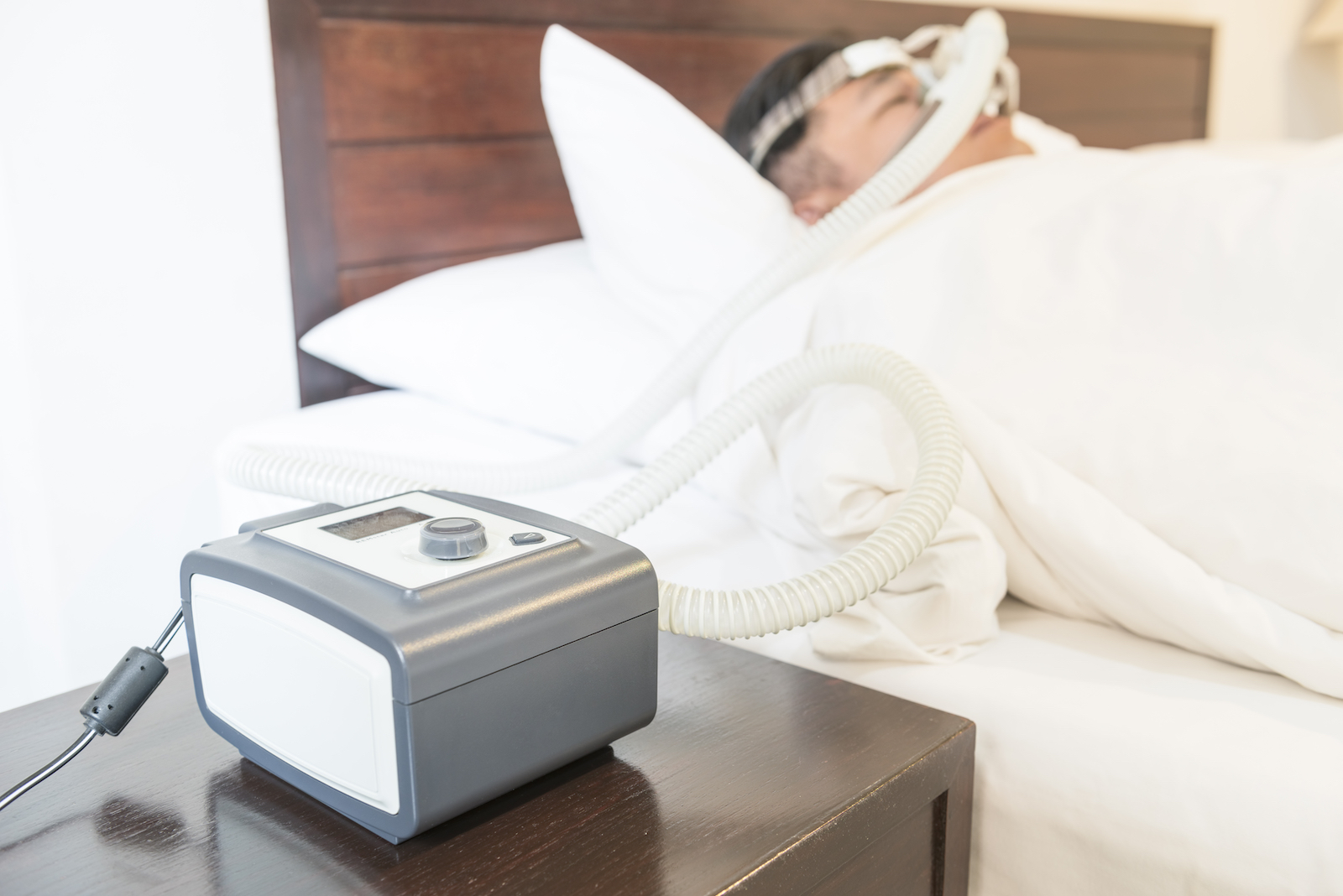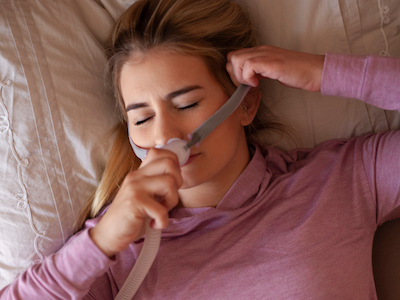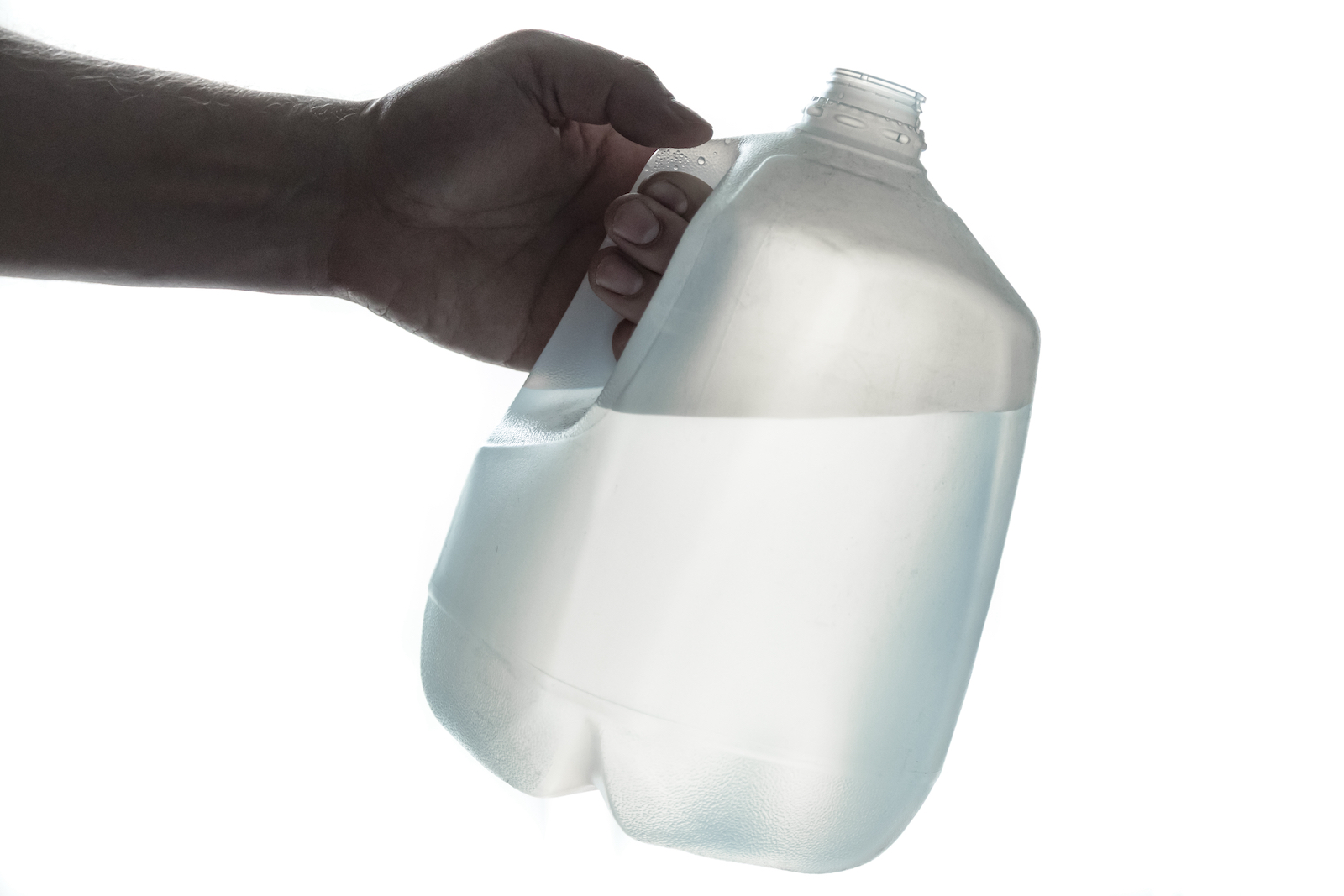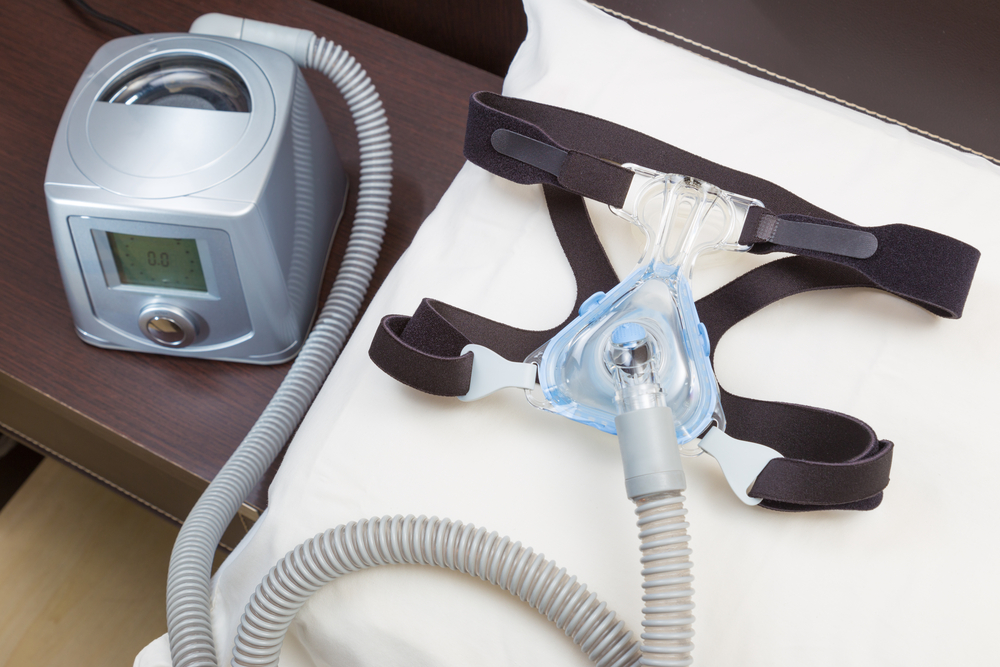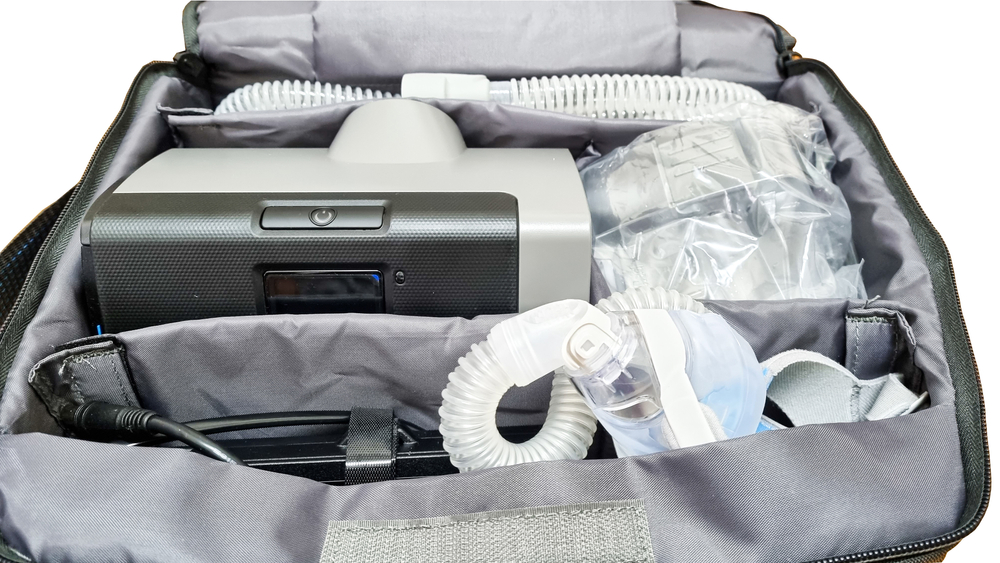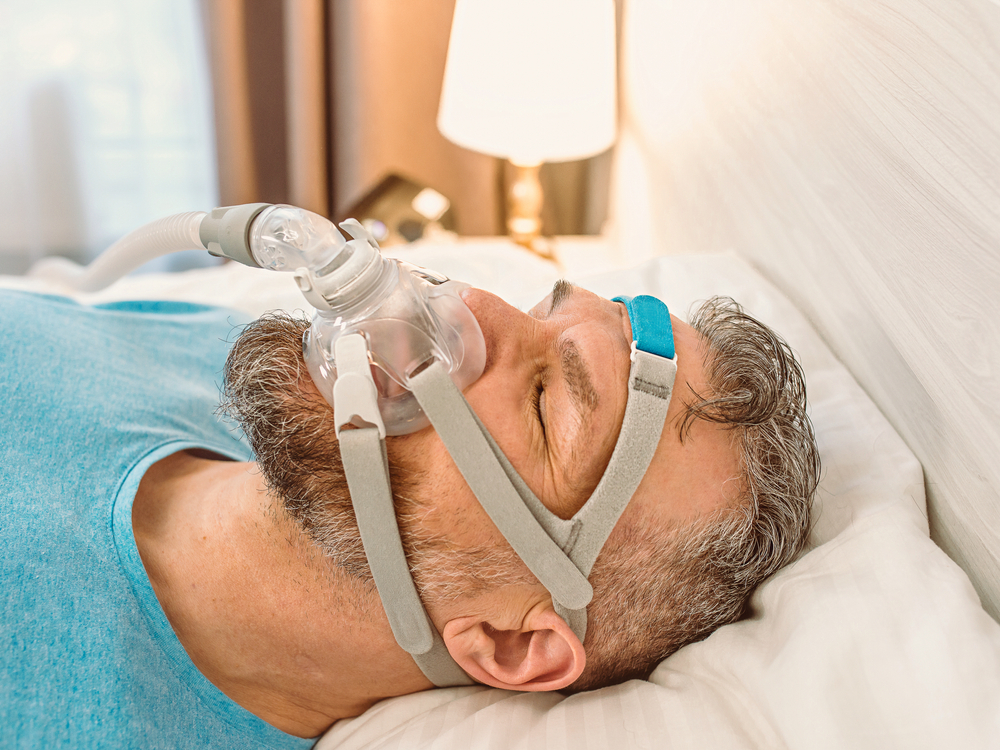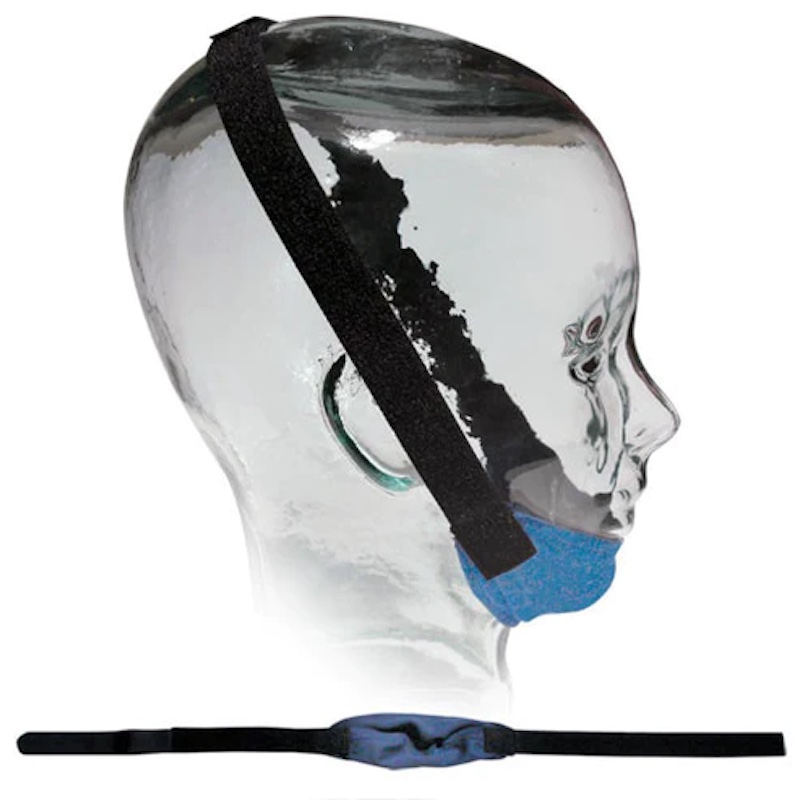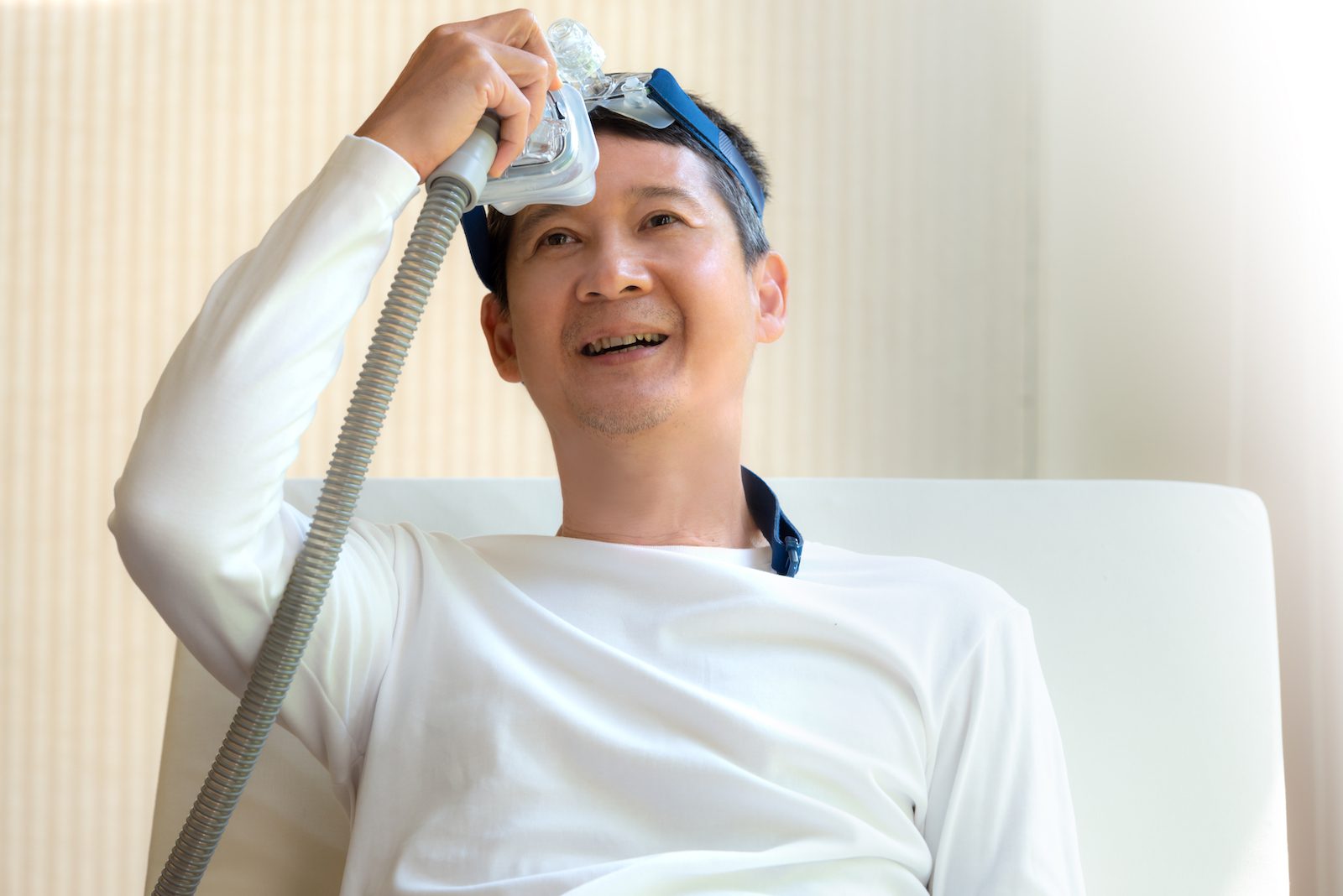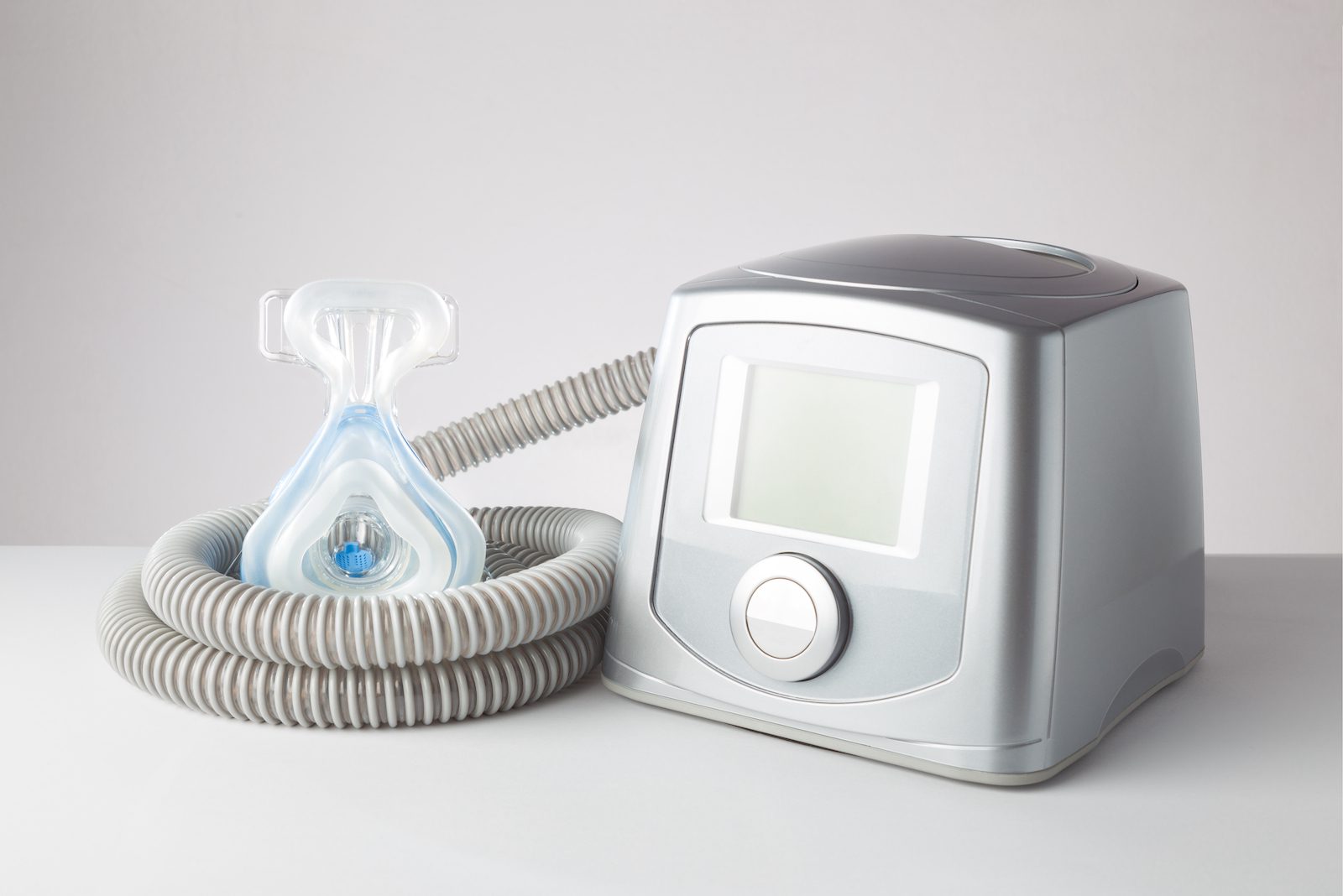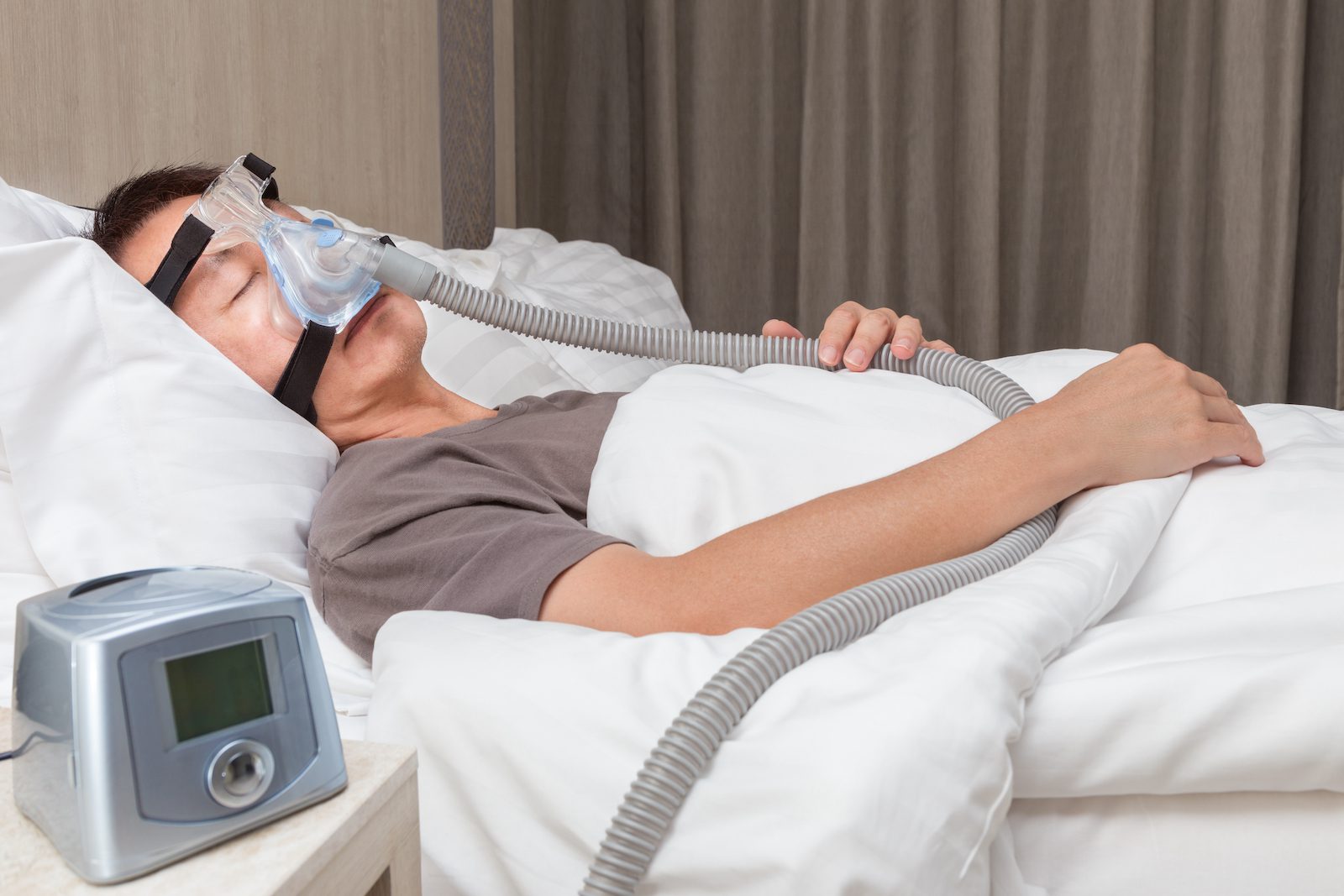Continuous positive airway pressure (CPAP) therapy is the gold standard treatment for obstructive sleep apnea (OSA), but traveling with a CPAP machine can be a hassle. Travel CPAP machines make things easier with their lightweight and streamlined design, as well as features intended for CPAP users on the move.
Choosing a travel CPAP model — or even deciding whether to purchase one at all — can be confusing, even for experienced CPAP users. We’ll introduce you to some of the best travel CPAP machines available, then walk you through everything you should know before choosing one.
ResMed AirMini
Ideal For
- Travelers who want moisture control without a bulky humidifier
- Customers looking for an ultra-light, ultra-small CPAP machine
- People who need a machine that’s approved by the FAA for in-flight use
Who Should Keep Looking
- Very light sleepers in search of an ultra-quiet option
- Users looking for a travel CPAP machine to also use at home
- People who prefer not to be locked into one company’s masks
-
Price
$968
-
Dimensions
5.4″ x 3.3″ x 2.1″
-
Noise Rating
29 dBA
-
Weight
0.66 lbs.
At only 10.6 ounces, the ResMed AirMini is one of the lightest CPAP machines on the market, but it’s the AirMini’s advanced features that really make it stand out from the crowd.
One of the AirMini’s main draws for travelers is its HumidX waterless humidification system that uses moisture already present in the air to ensure a comfortable CPAP experience. Customers who frequently travel to arid regions with less atmospheric moisture may want to choose the HumidX Plus option for added security.
Other features include automatic ramp settings, which gradually increase the air pressure level, and sleep tracking with app integration. The AirMini is also approved by the Federal Aviation Administration for in-flight use.
The AirMini has both CPAP and automatic positive airway pressure (APAP) settings, the latter of which automatically adjusts air pressure based on the user’s breathing patterns. Additionally, the AirMini features expiratory pressure relief settings that gently lower the air pressure level when exhaling.
While very effective for use while traveling, the AirMini is not built for daily use and is not as durable as most standard CPAP machines. AirMini users are also limited in their choice of masks and must select from five ResMed varieties. The waterless humidification system is only compatible with the AirFit P10 Nasal Pillow Mask and the N20 and N30 nasal masks.
ResMed backs the AirMini with a two-year warranty. Shoppers in the U.S. who purchase the device from Lofta receive free shipping.
Use this SleepApnea.org link for the most current discount on ResMed products
Shop NowTranscend Micro Travel Auto-CPAP
Ideal For
- CPAP users who like to travel light
- Those who don’t mind using machine-specific tubing
- People who have an existing CPAP mask they’re happy with
Who Should Keep Looking
- Those unwilling to pay a little more for convenience
- CPAP users who don’t want to buy a separate humidification device
- People who travel infrequently
-
Price
$870
-
Dimensions
3.6″ x 3.6″ x 2.4″
-
Noise Rating
27 dBA
-
Weight
0.48 lbs.
If space is at a premium in your carry-on luggage, travel CPAP machines don’t come any smaller than the Transcend Micro Travel Auto-CPAP. Resembling a compact white noise machine, the device delivers the full range of standard CPAP pressure settings.
While the Micro carries a higher price-point than the company’s Transcend 3 machine, it has many similar features. The GentleRise function lets users slowly ramp up the pressure level as they fall asleep. The AirRelief feature lowers the pressure level during exhalation. And like the Transcend 3, the Micro has a drying mode that removes built-up moisture during a 30-minute cycle.
Though its 31-decibel noise rating is slightly higher than average, the machine comes with an optional WhisperSoft connector device designed to muffle the sound of air flowing through the tubing.
While the machine is compatible with any CPAP mask, users should note that the Transcend Micro comes with a 6-foot custom hose specifically designed for use with this device. However, the company sells hoses of different lengths that are compatible with the machine.
The Micro does not have a built-in humidifier, but a hose adapter called the AirMist HME is available separately. This heat moisture exchanger is a waterless humidification device that uses the moisture from exhaled breath to humidify the air passing through the CPAP hose.
The Transcend Micro Travel Auto-CPAP comes with a two-year warranty. Shipping is free for U.S. purchasers who buy the device from Singular Sleep.
Use this SleepApnea.org link for the most current discount on Transcend products
Shop NowBest for In-Flight Use
Breas Z2 Auto Travel CPAP Machine
Ideal For
- Those seeking a humidifier-free device
- People who need to ease into their CPAP therapy with an auto-ramp
- Travelers who need to use their machine during flights
Who Should Keep Looking
- Sleepers who don't need automatic pressure adjustments to sleep comfortably
- People who prefer to use heated tubing during CPAP therapy
- Shoppers with limited budgets
-
Price
$799
-
Dimensions
6.5″ x 3.3″ x 2″
-
Noise Rating
26 dBA
-
Weight
0.65 lbs.
Like many travel CPAP devices on the market, the Breas Z2 Auto is FAA-compliant for in-flight use. An additional altitude compensation feature adjusts airflow based on the plane's elevation to ensure healthy delivery for the duration of your flight. The machine also automatically increases or decreases the pressure settings based on your breathing patterns to help you sleep comfortably once you're on the ground.
Another convenient feature for travelers is the water-free humidification system. The integrated cartridge absorbs moisture every time you exhale, so you don't need water or electricity to get the humidification you need. This also means you won't need to drain the device prior to your departure or seek out distilled water once you arrive at your destination. At 26 dBA, the machine is fairly quiet and shouldn't disturb your fellow passengers. An integrated backup battery charges the device for up to one night if you don't have an available power source.
The machine cannot be used with heated tubing, which may be a dealbreaker if you require this feature to sleep comfortably during CPAP therapy. However, the device is compatible with any face mask on the market. The machine automatically starts once your mask is secured, then shuts off after you remove the mask. An auto-ramp feature allows you to ease into your therapy with lower pressure settings that gradually increase as you fall asleep.
At 10.5 ounces, the Z2 Auto is lightweight even by travel CPAP machine standards. You may return the device unopened and unused within 60 days of delivery. Should you decide to keep the Z2 Auto, Breas backs your purchase with a two-year warranty.
Use this SleepApnea.org link for the most current discount on Breas products
Shop NowWhy We Picked These
Our team chooses our featured products by doing in-depth research into customer experiences with the machines and manufacturers, special features that vary between models, and more. By combining this research with our expertise in topics related to sleep apnea, we’re able to point readers toward machines that may work best for their needs.
What’s the Difference Between CPAP and Travel CPAP Machines?
Travel CPAP machines are smaller and more lightweight than standard CPAP machines, and many offer travel-friendly features such as automatic altitude adjustment and the ability to run off of alternative power sources.
However, travel CPAP machines are not necessarily the right choice for daily use. Standard CPAP machines are often sturdier and less expensive than travel CPAP machines. Additionally, standard machines often have premium features — such as an integrated humidifier — that travel CPAP machines may lack.
Pricing and Sizing
CPAP machines vary in price depending on what kind of features they offer, their size, and their noise level. Most CPAP machines cost between $350 and $1,000, though prices can reach $3,000 for specialized options. Keep in mind that some insurance plans may partially or completely cover the cost of a CPAP machine.
Automatic positive airway pressure (APAP) and bilevel positive airway pressure (BiPAP) devices often cost more because they have intricate pressure settings. These machines can cost up to $6,000.
Most devices are small enough to rest on your nightstand and light enough that you can lift them easily with one hand. Though exact sizes vary, many machines are less than 12 inches long, 8 inches wide, and 6 inches tall. Most machines weigh less than 5 pounds. Make sure to factor your tubing and humidifier into space requirements before making your purchase.
| Travel CPAP Machines | Standard CPAP Machines |
|---|---|
Pros:
| Pros:
|
Cons:
| Cons:
|
Are There Travel Versions of BiPAP or APAP Machines?
While CPAP therapy is the first-line treatment option for sleep apnea, some people respond better to bi-level positive airway pressure (BiPAP) or automatic positive airway pressure (APAP). BiPAP involves two distinct pressure settings for inhalation and exhalation, while an APAP machine automatically responds to a user’s breathing patterns and adjusts the pressure accordingly.
APAP and BiPAP machines designed for travel are less common than travel CPAP machines, though some travel CPAP devices also come with APAP settings. BiPAP users who have trouble finding a travel-specific model can alternatively look for a lightweight and streamlined standard BiPAP machine that can run off of a battery or other alternative power source.
What You Should Consider When Choosing a Portable CPAP Machine
Deciding on the right travel CPAP model is important to ensure it suits both your medical needs and personal preferences. Understanding what to look for before purchasing can make the process much more straightforward.
Pricing and Sizing
The average cost of a travel CPAP machine ranges from around $500 for budget models to $1,200 or more for luxury machines, though most have a price-point around $800. Most standard CPAP machines range between $250 and $1,000, making travel models the pricier option on average. That said, certain CPAP models with advanced features can cost several thousand dollars.
The average travel CPAP machine is several inches smaller in all dimensions than traditional models. Most standard CPAP machines are designed to sit on a nightstand, while a typical travel CPAP machine can be easily held with one hand.
Travel Considerations
While travel CPAP machines make traveling easier, there are still a number of factors to keep in mind before embarking on a trip. Some questions to answer before you travel include:
- Is your travel CPAP device FAA-approved for in-flight use?
- Are you traveling to a country with different electrical outlets?
- If you use a humidifier, will you have access to distilled water or should you bring your own?
- Will you use a battery or other alternative power sources while on your trip?
- Does your CPAP machine automatically adjust to altitude changes?
Weight
Many travel CPAP machines weigh less than a pound, making them much easier to pack into your carry-on luggage, but not all travel CPAP machines are tiny. Some models that are marketed as travel machines are closer in size to standard CPAP machines and can weigh several pounds. If you’re packing light, make sure to double-check weight before purchasing your new machine.
Noise Level
The average noise level of CPAP machines — including travel CPAP models — is around 30 decibels, which is equivalent to someone whispering nearby. Some CPAP machines are specifically designed to be even quieter, though this is more difficult to achieve on smaller travel machines since there’s less room for noise-abating features.
Pressure Ranges and Ramp Settings
Travel CPAP machines, like their larger counterparts, usually have a pressure range of 4 to 20 centimeters of water pressure (cm H2O). Since the average prescribed pressure setting is between 8 and 10 cm H2O, most CPAP users should find the pressure range of travel CPAP machines sufficient for their needs. Ramp settings start the machine with a lower pressure level to make it easier to fall asleep.
Data Tracking and Smart Features
Most CPAP devices, including travel CPAP machines, track data like how long the machine is used every night. This data helps the user’s health care team monitor their treatment, though it may also be required by insurance providers as part of the reimbursement process.
Advanced travel CPAP machines may also offer more detailed data collection features. These features can be useful when traveling, particularly for long periods, as they provide the user and their health care team with in-depth insight into the treatment’s effectiveness.
Leveraging Smart Features
Modern CPAP machines often offer smart features such as an app for data management, Bluetooth or Wi-Fi connectivity, or the ability to automatically send data to your health care provider. It’s worth considering whether these features are right for you, as they can be very useful when traveling but usually come with a higher price tag.
Do You Need a Prescription for a Travel CPAP Machine?
Just like standard CPAP machines, portable CPAP machines require a prescription before they can be purchased. As CPAP machines can cause harm if used without medical supervision, the Food and Drug Administration has classified them as a Class II medical device.
Where Can You Buy a Portable CPAP Machine?
While travel CPAP machines can sometimes be purchased through your sleep specialist, brick-and-mortar and online stores may offer a wider selection of models. However, there are pros and cons to each approach.
| Location | Pros | Cons |
|---|---|---|
| Sleep specialist |
|
|
| Brick-and-mortar store |
|
|
| Online retailer |
|
|
Will Your Insurance Cover the Cost of a Portable CPAP Machine?
While health insurance companies may cover the cost of a travel CPAP machine if you do not have a standard model, purchasing a second device for travel is generally not covered. Insurance coverage for CPAP machines can be complex and is often structured as a lease-to-own agreement that requires monthly payments and data collection.
Travel CPAP Accessories and Compatibility
All CPAP machines require users to purchase accessories such as masks and replacement filters, but there are optional accessories such as external batteries that can be invaluable while traveling.
Travel CPAP Accessories
| External Batteries | External batteries are a popular accessory for portable CPAP machines, as they enable CPAP therapy while camping, during power outages, or when electricity access is limited. Not all travel CPAP machines are compatible with external batteries, and those that are may require the use of a specific type of battery. |
| Humidifier | Humidifiers add moisture to the forced air produced by CPAP machines. The added water vapor can make CPAP therapy more comfortable and reduce side effects like dry airways. Integrated humidifiers significantly increase the size and weight of a CPAP device, while accessory humidifiers can be removed to keep the device size small. |
| Filters | CPAP machines use filters to prevent contaminants like pollen and dust from reaching the user’s airway. CPAP users should wash their reusable filters biweekly and replace them every three months. Disposable filters usually have a two-week lifespan. |
| Mask and Headgear | Choosing the right CPAP mask is critical, as the wrong style or fit may make CPAP therapy uncomfortable or lessen the treatment’s effectiveness. Your health care team can help point you toward the design that may work best for you. Most CPAP masks come with headgear, which is what keeps the mask on a user’s face. Like masks, there are a variety of headgear options to choose from. |
| Hosing | Most travel CPAP machines come with hosing that delivers air from the machine to the mask, but some people choose to replace it with thinner or shorter tubing when traveling. Heated tubing is also available, which is designed to prevent condensation from forming when using a humidifier. Regardless of the type of hose you use, it will wear out eventually and must be replaced as necessary. |
| CPAP Pillows | CPAP machines can be used with a standard pillow, but CPAP pillows often have curves or cutouts designed to accommodate masks and headgear. Most CPAP pillows are large and bulky, but travel pillows are also available. |
Compatibility of Your Portable CPAP Device With Accessories
It’s worthwhile to consider what accessories you may want to use before you purchase your travel CPAP machine, as not all accessories are compatible with all devices. This is particularly true if you already have a standard CPAP machine and hope to use the same accessories with both models.
The manufacturer’s official website is often the best place to find compatibility information for a CPAP machine. Online retailers may also list compatibility information on the device’s page.
CPAP Machines
Many people have questions about buying and using a travel CPAP machine. While understanding how CPAP machines work and what to look for can help, your health care team is the best source for in-depth answers and advice.
CPAP machines should be packed in carry-on luggage rather than being checked, as they are delicate medical devices that are easily damaged. Security will need to X-ray your machine, so it should be placed inside a clear plastic bag to protect it during this process. A hard-shelled carry case can keep the machine safe inside your carry-on bag.
If you use a humidifier, check the availability of distilled water at your destination. You might want to pack distilled water in your checked luggage if you’re going somewhere without easy access. Humidifiers require distilled water, as ordinary water may contain minerals and chemicals that can cause buildup in your machine and can be harmful to breathe.
Most CPAP devices are compatible with all CPAP masks that have a 22-millimeter cuff connection, but some travel CPAP machines should only be used with certain masks. If you’d like to freely switch masks between two devices, double-check mask compatibility on the manufacturer’s website before making your purchase.
While a travel CPAP machine can be used as your at-home CPAP device, they are less durable and have other limitations that can make a standard CPAP machine the better option for daily use. Travel CPAP machines tend to be louder than standard models, for example, and they are less likely to have features such as an integrated heated humidifier.
Accessories can also be more expensive and more limited when using a travel CPAP machine. Some travel machines require the use of specific masks, filters are usually more expensive than those for standard models, and the machine itself is likely to need replacing sooner than a standard machine would.
Medical Disclaimer: This content is for informational purposes and does not constitute medical advice. Please consult a health care provider prior to starting a new treatment or making changes to your treatment plan.

